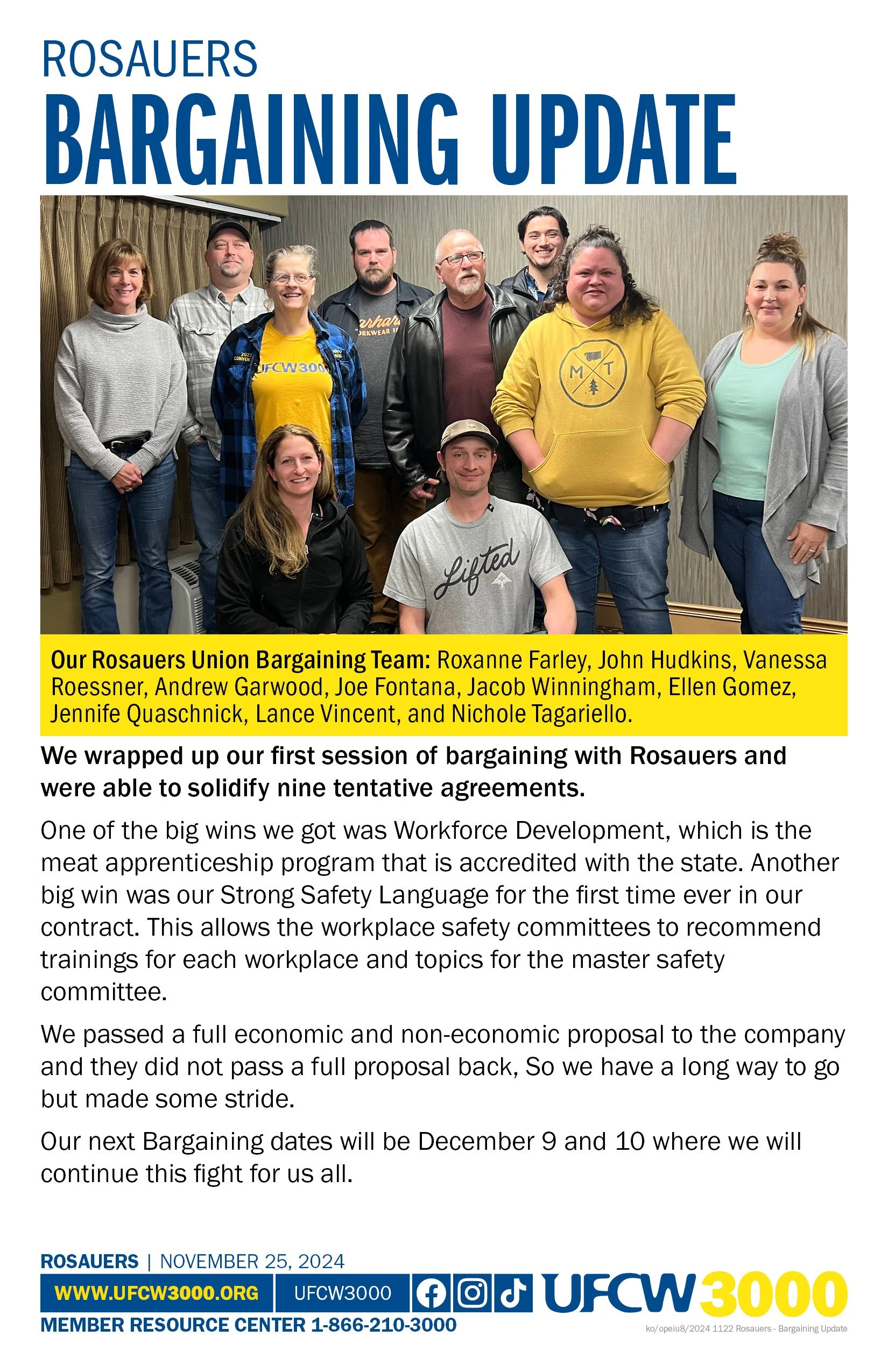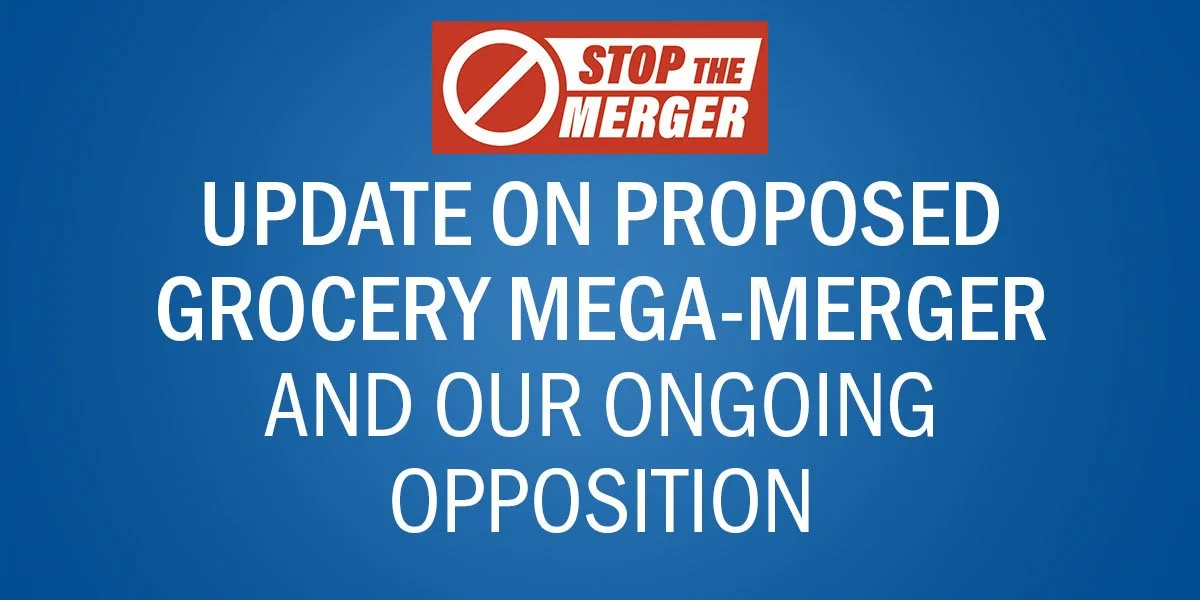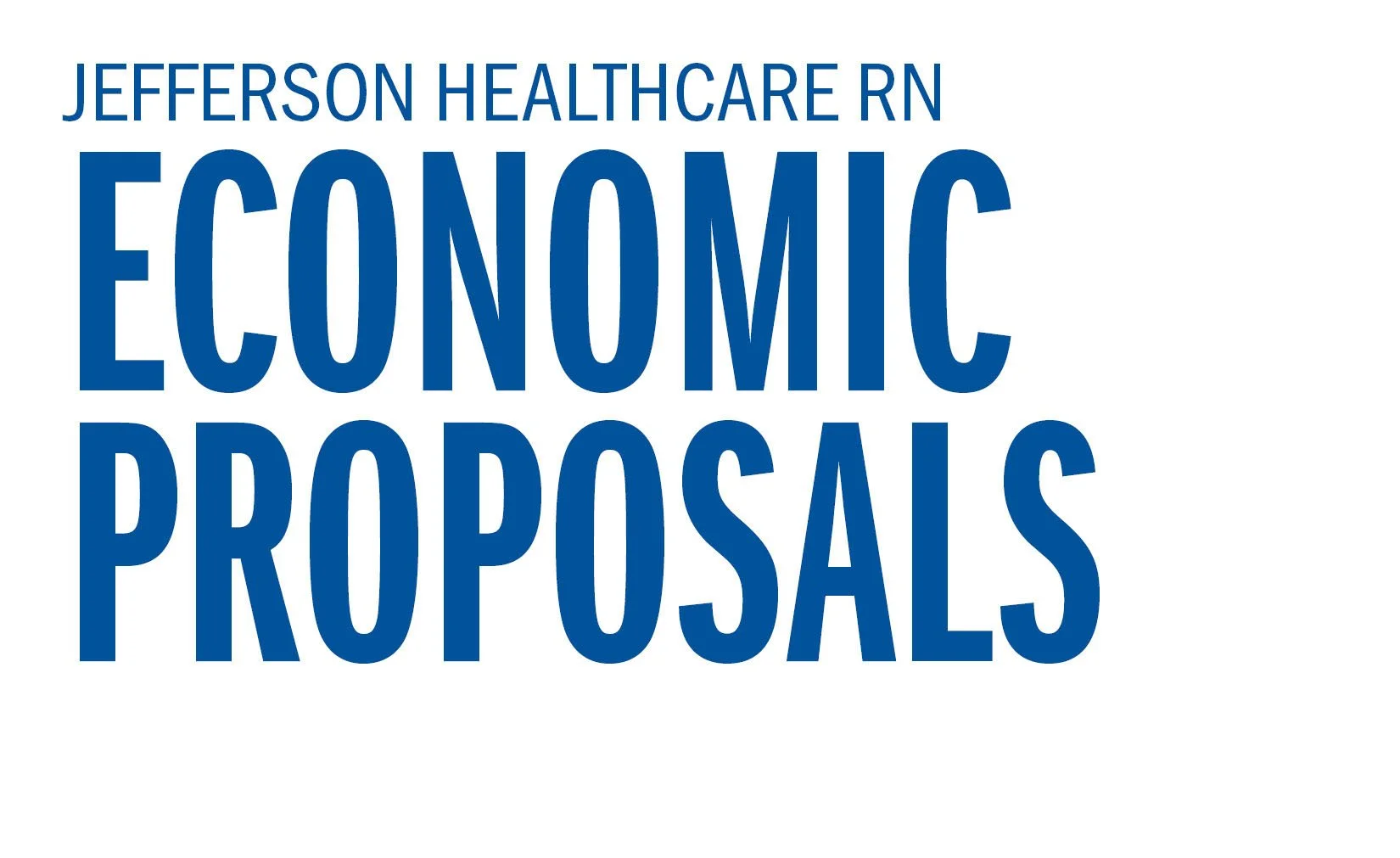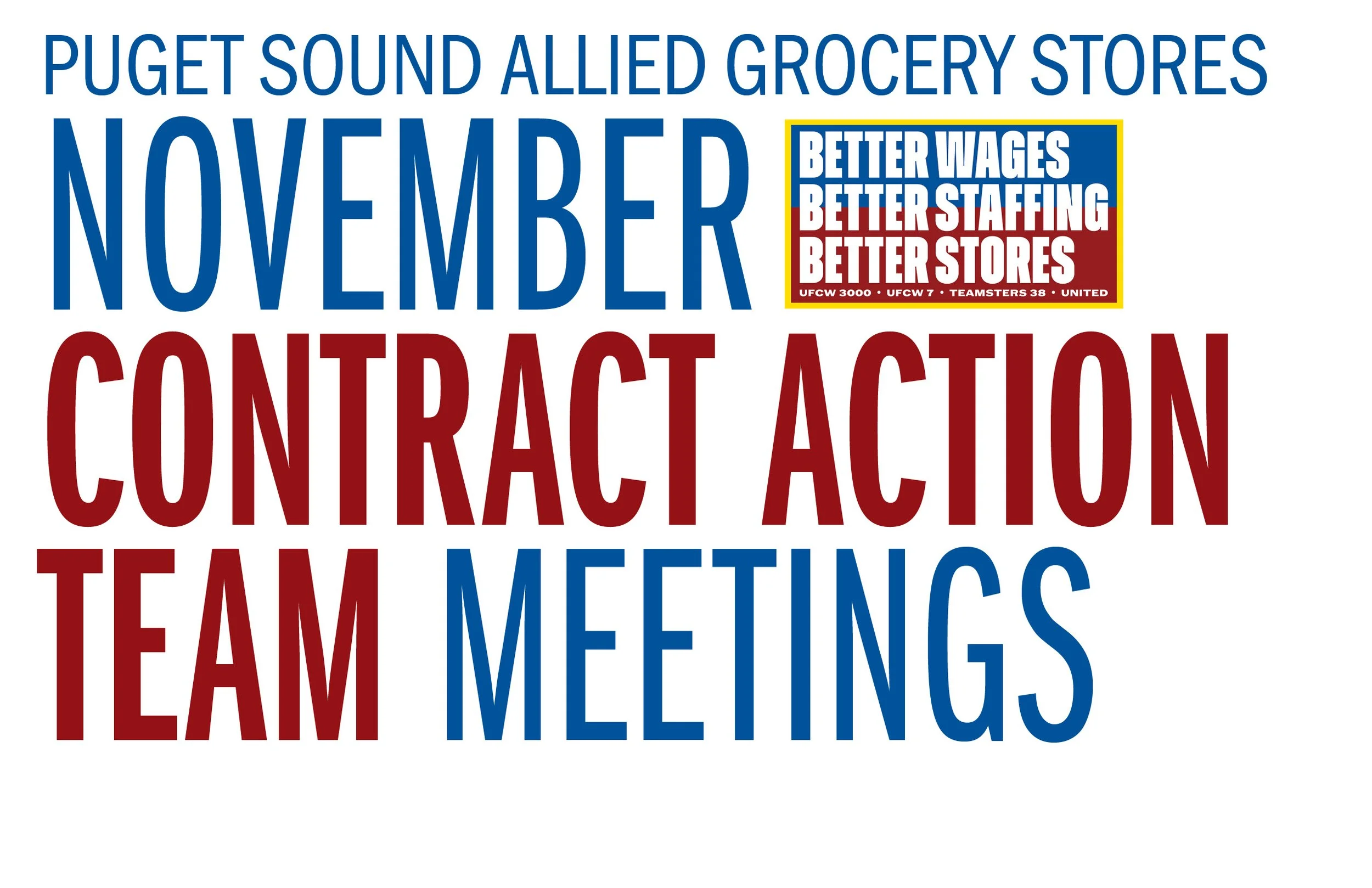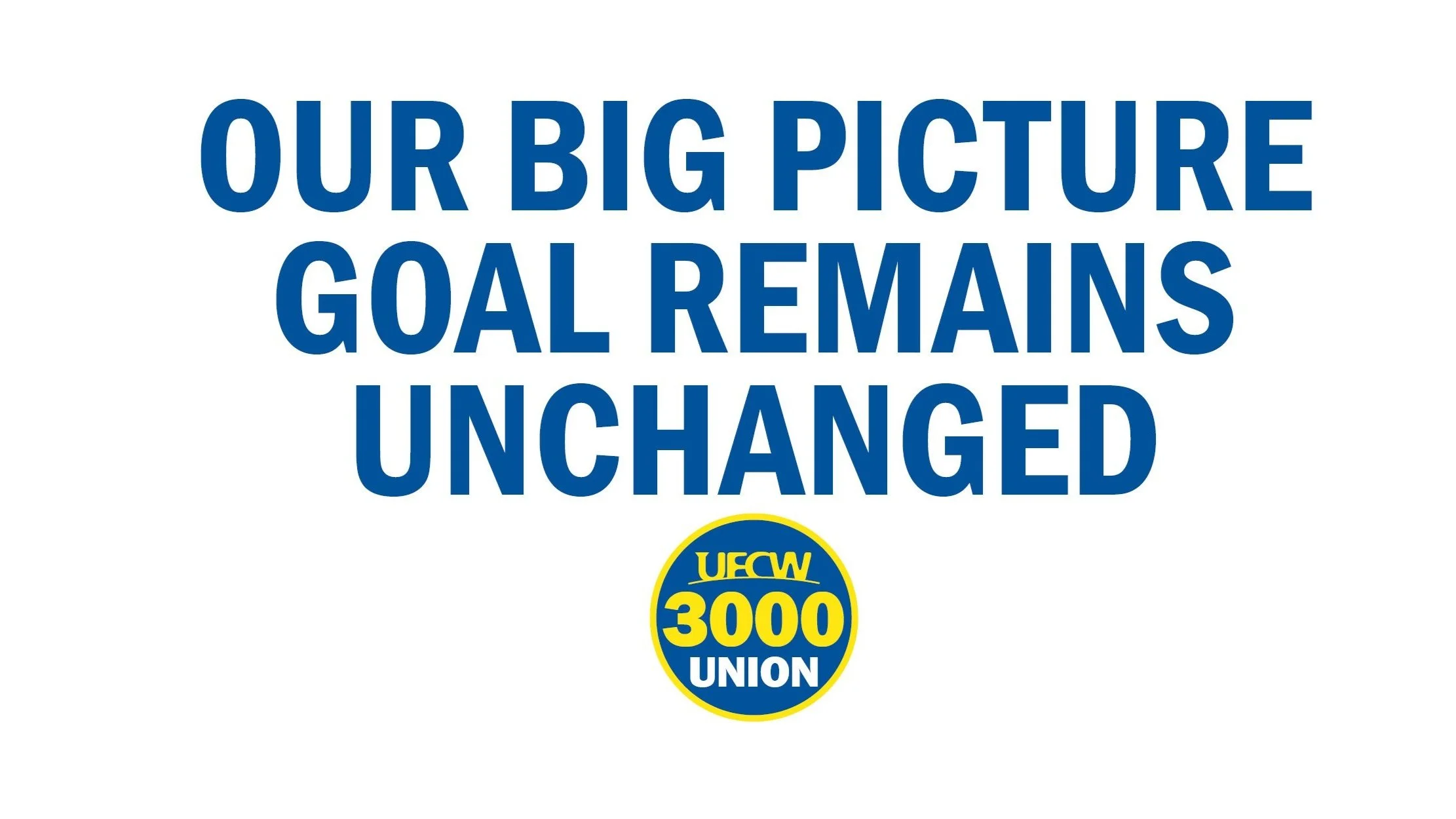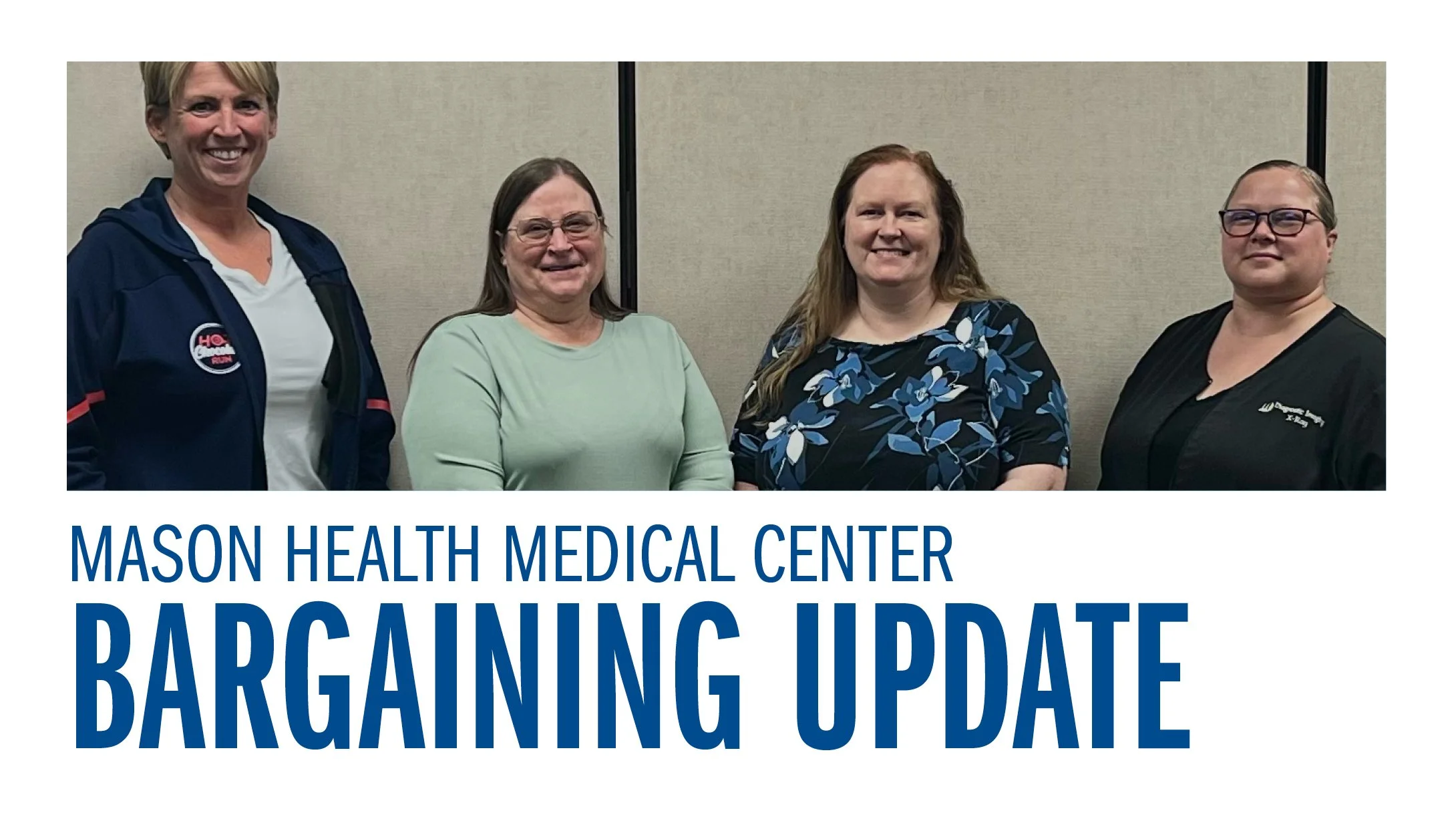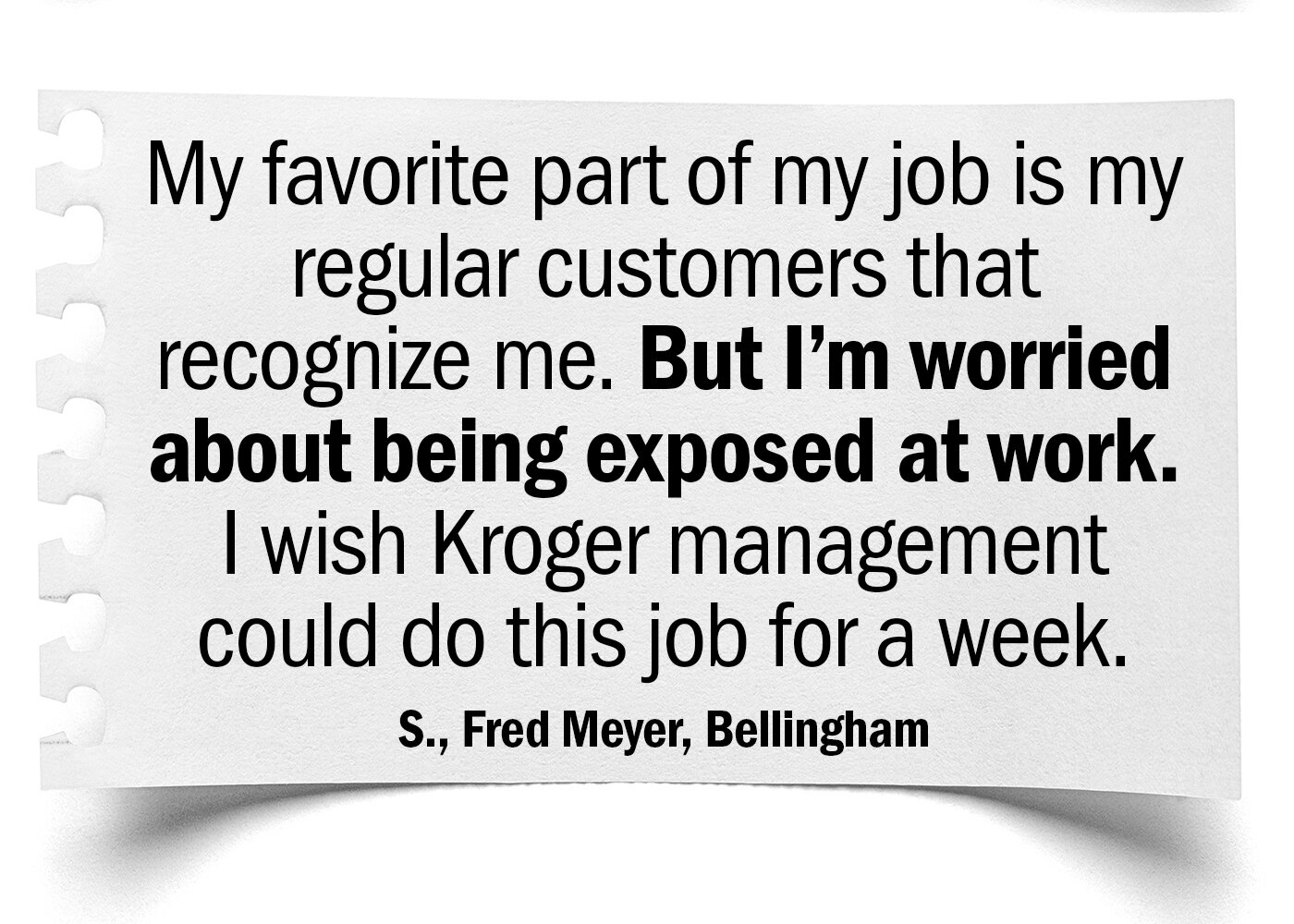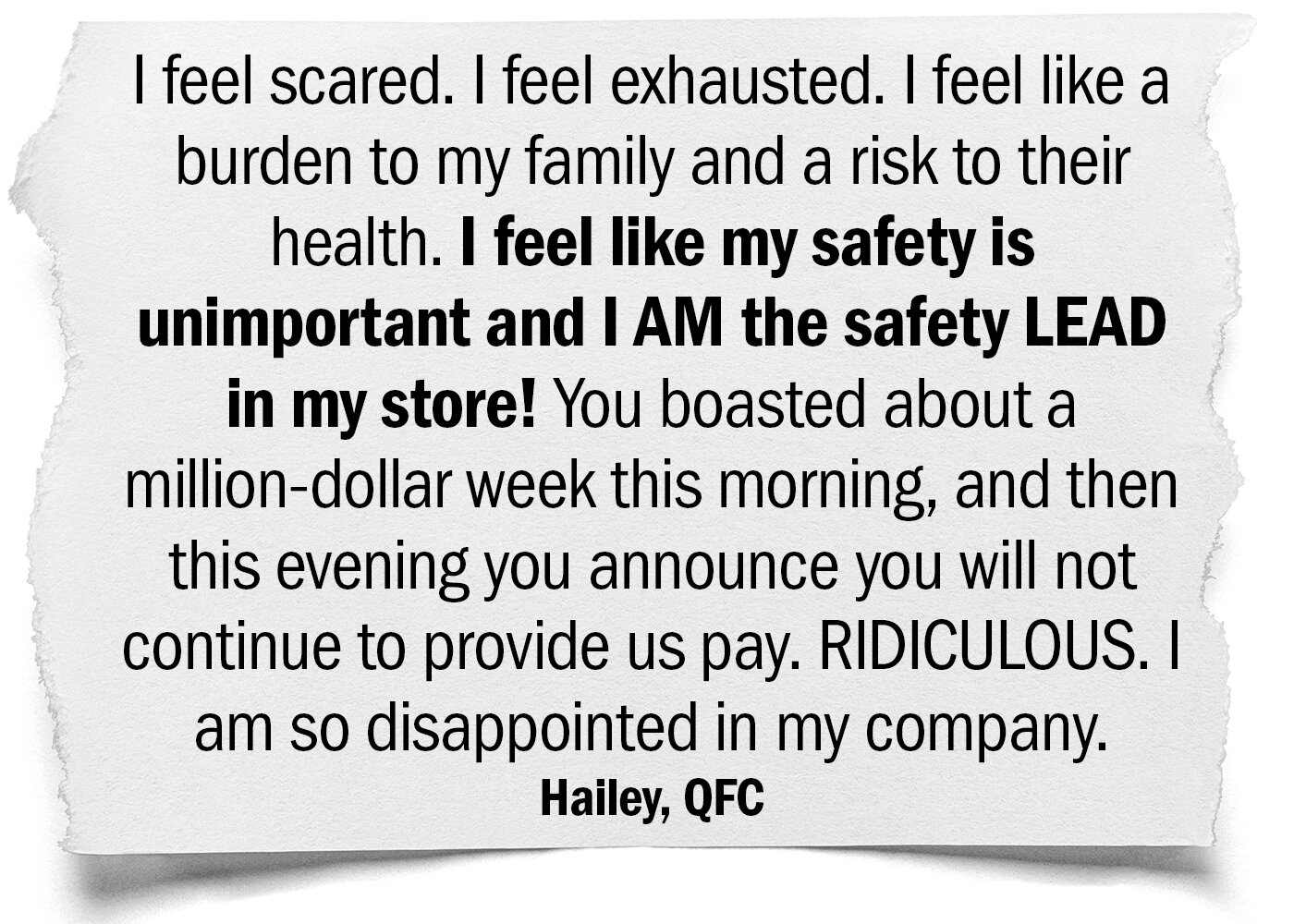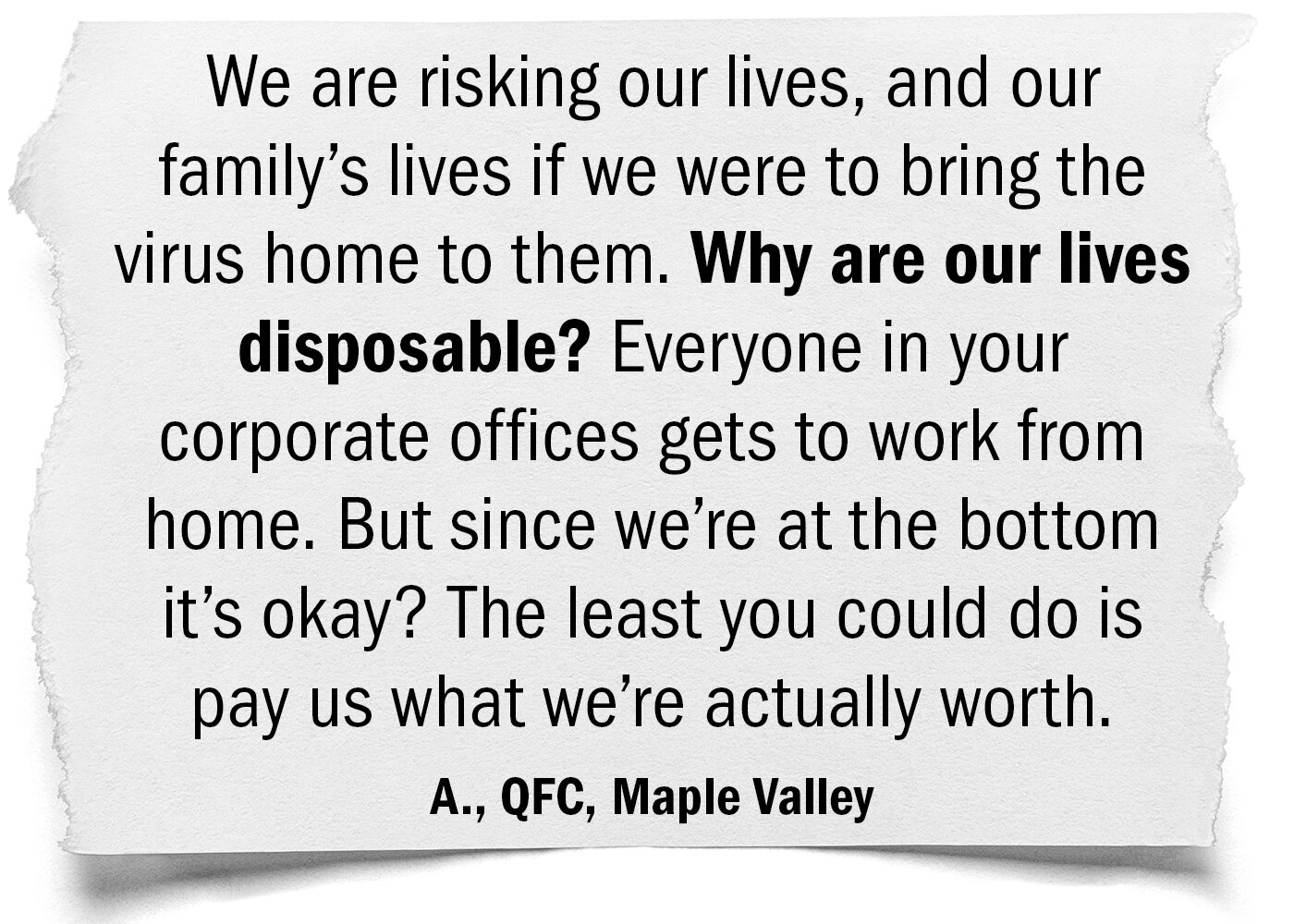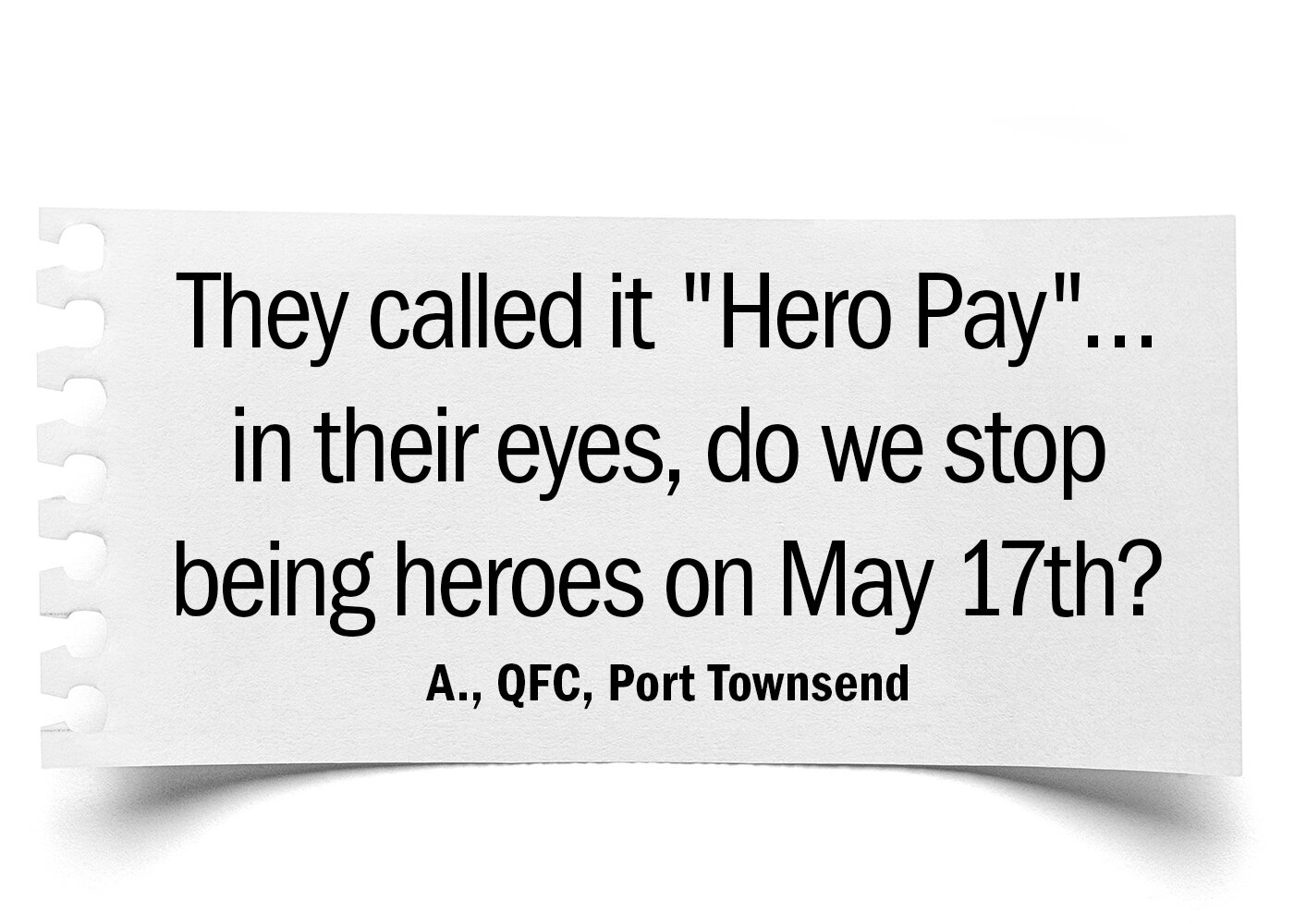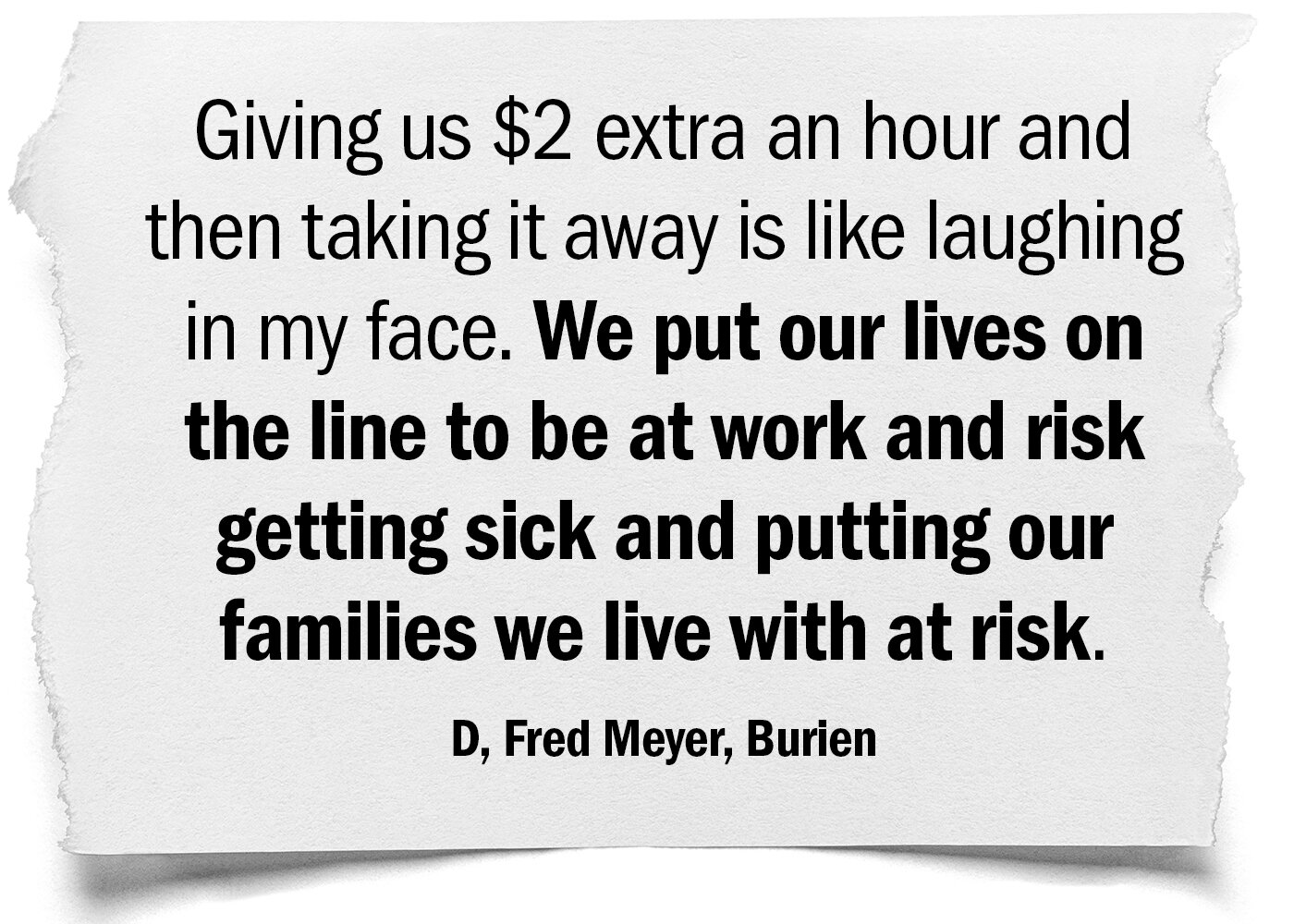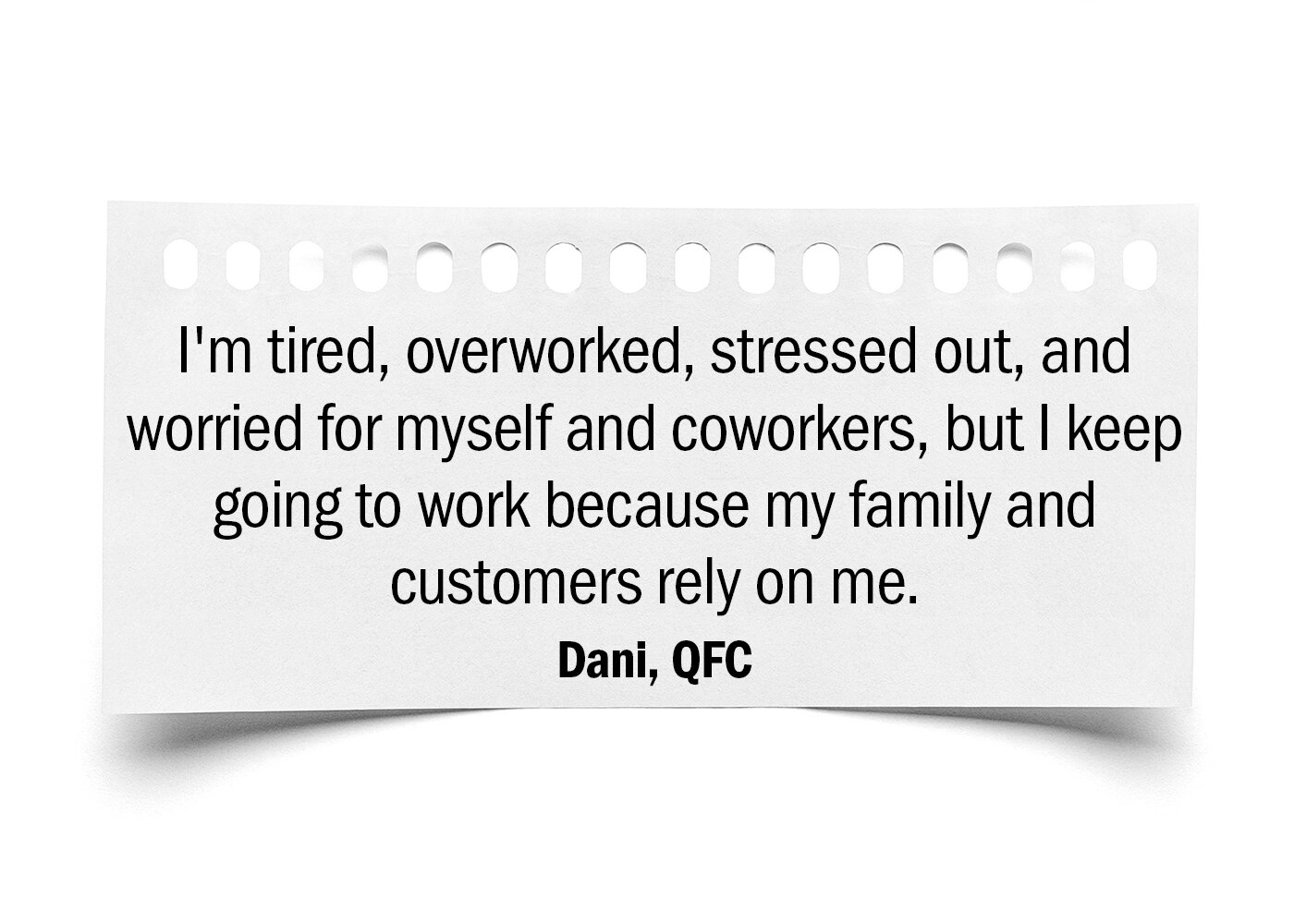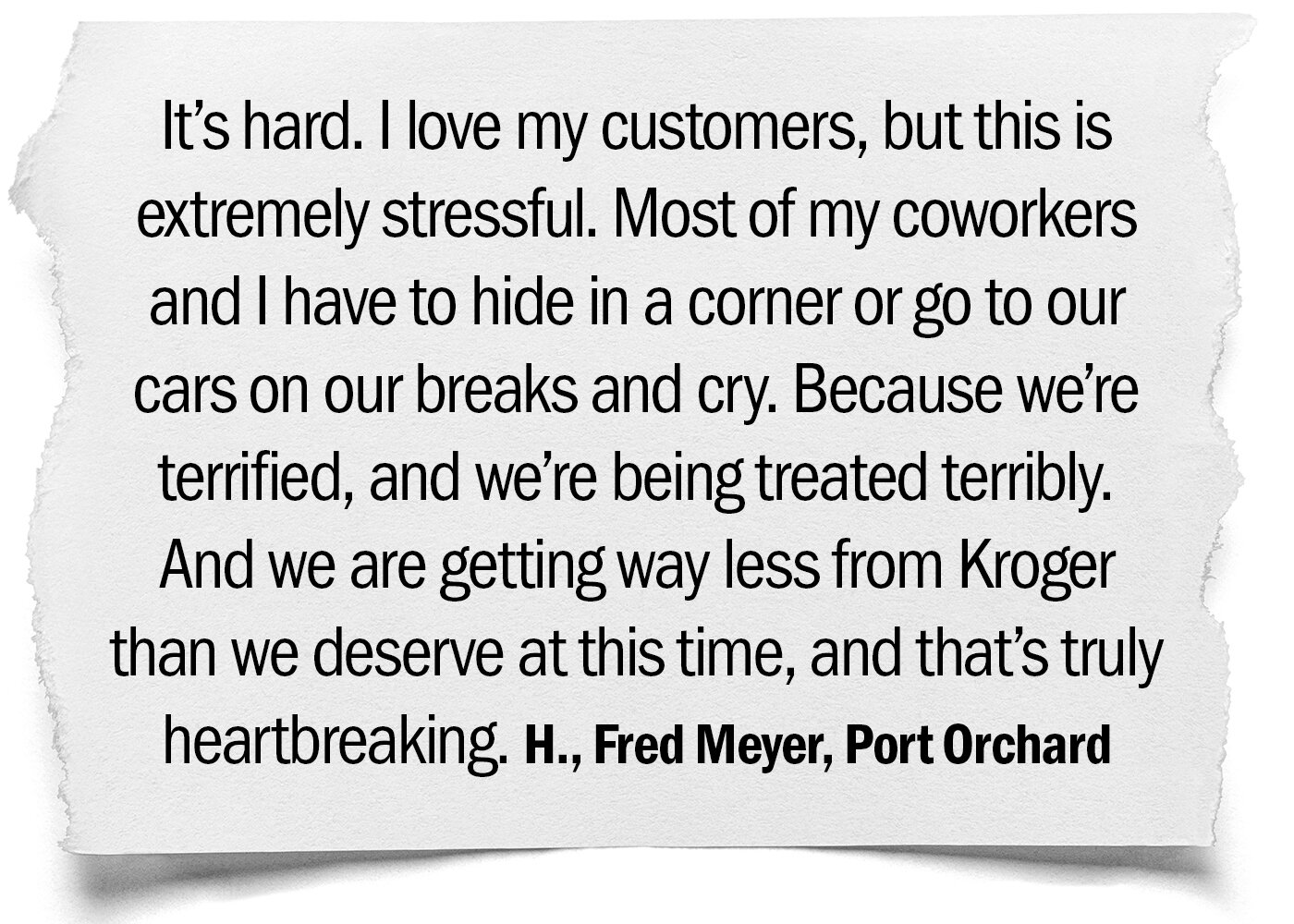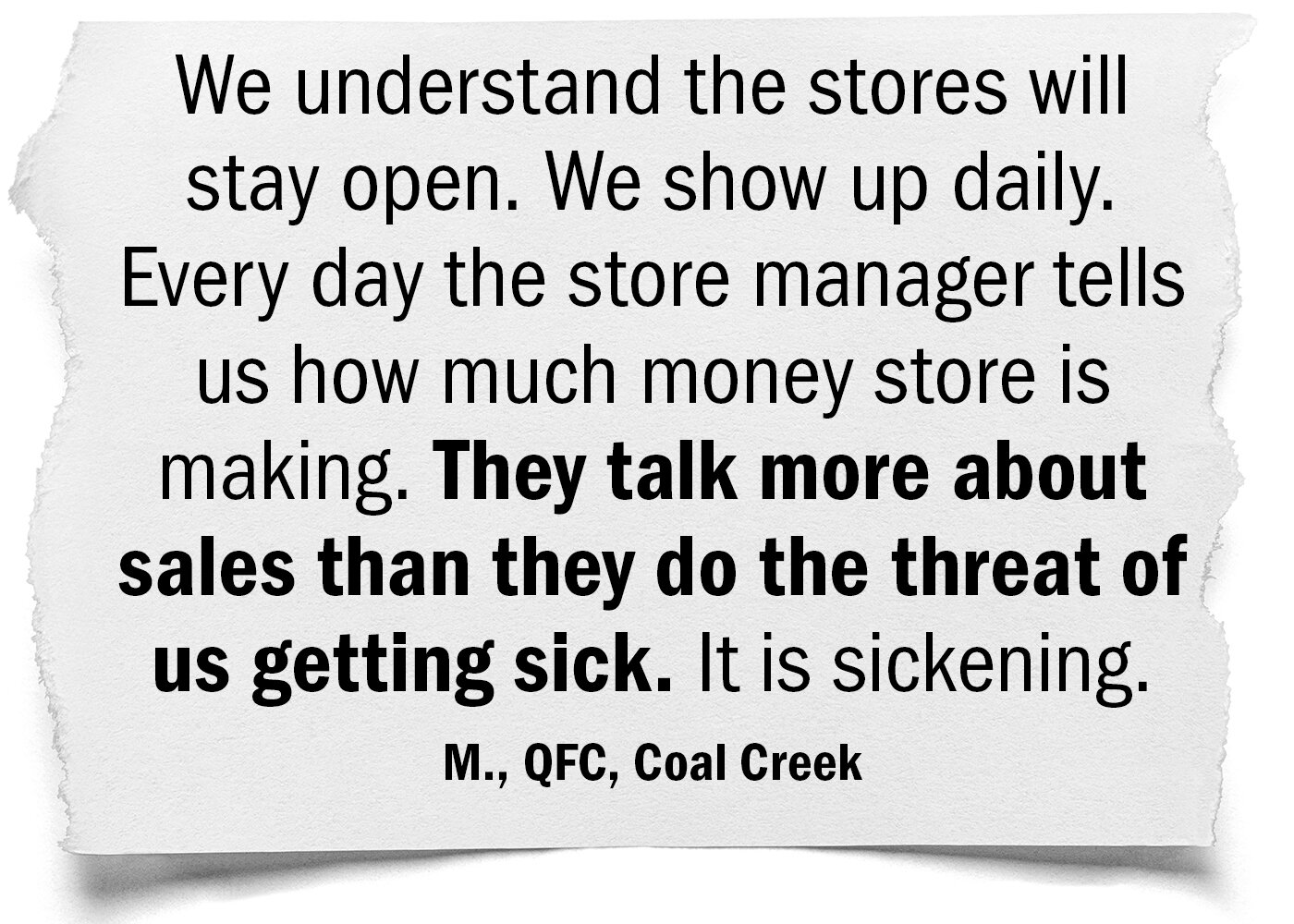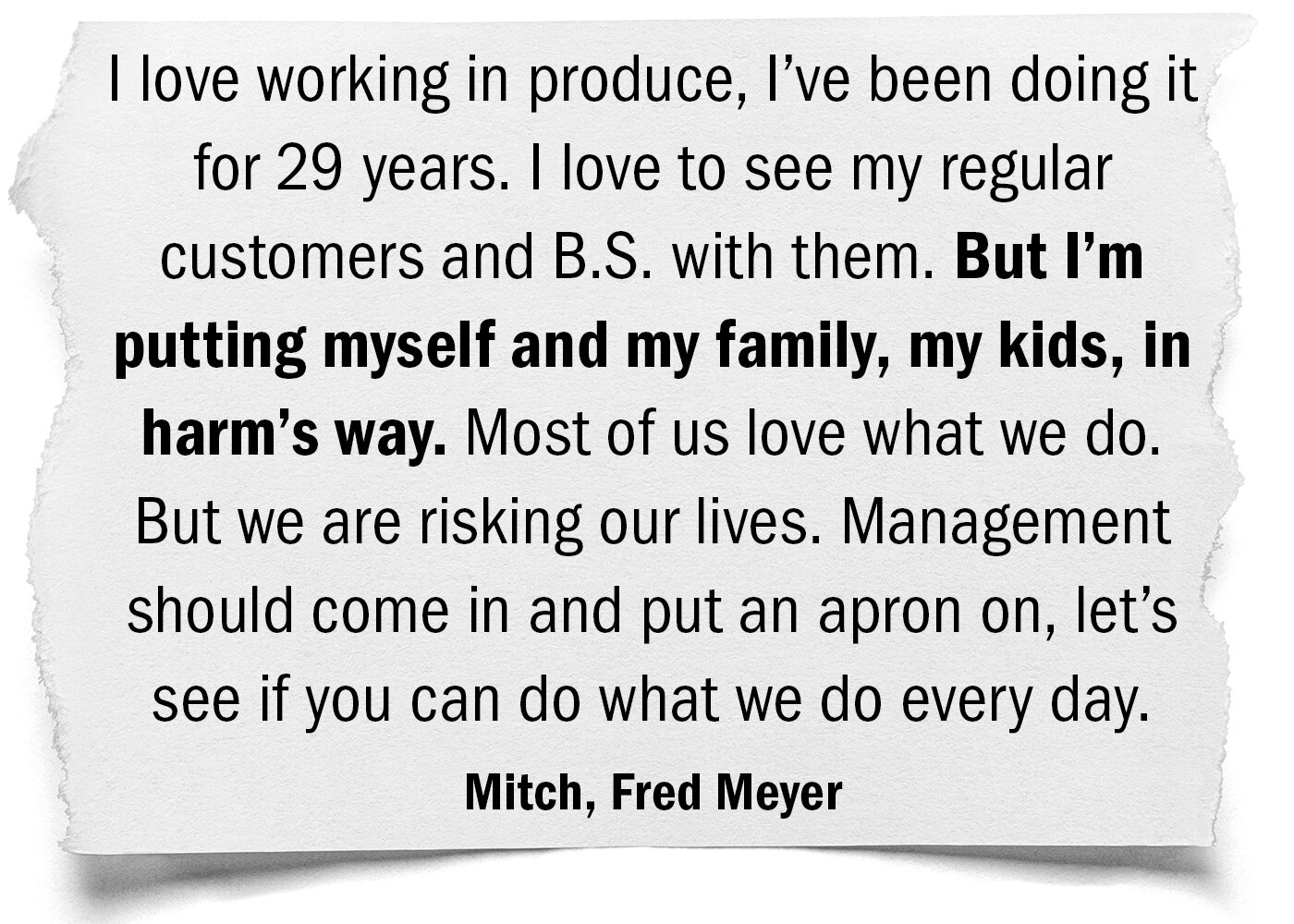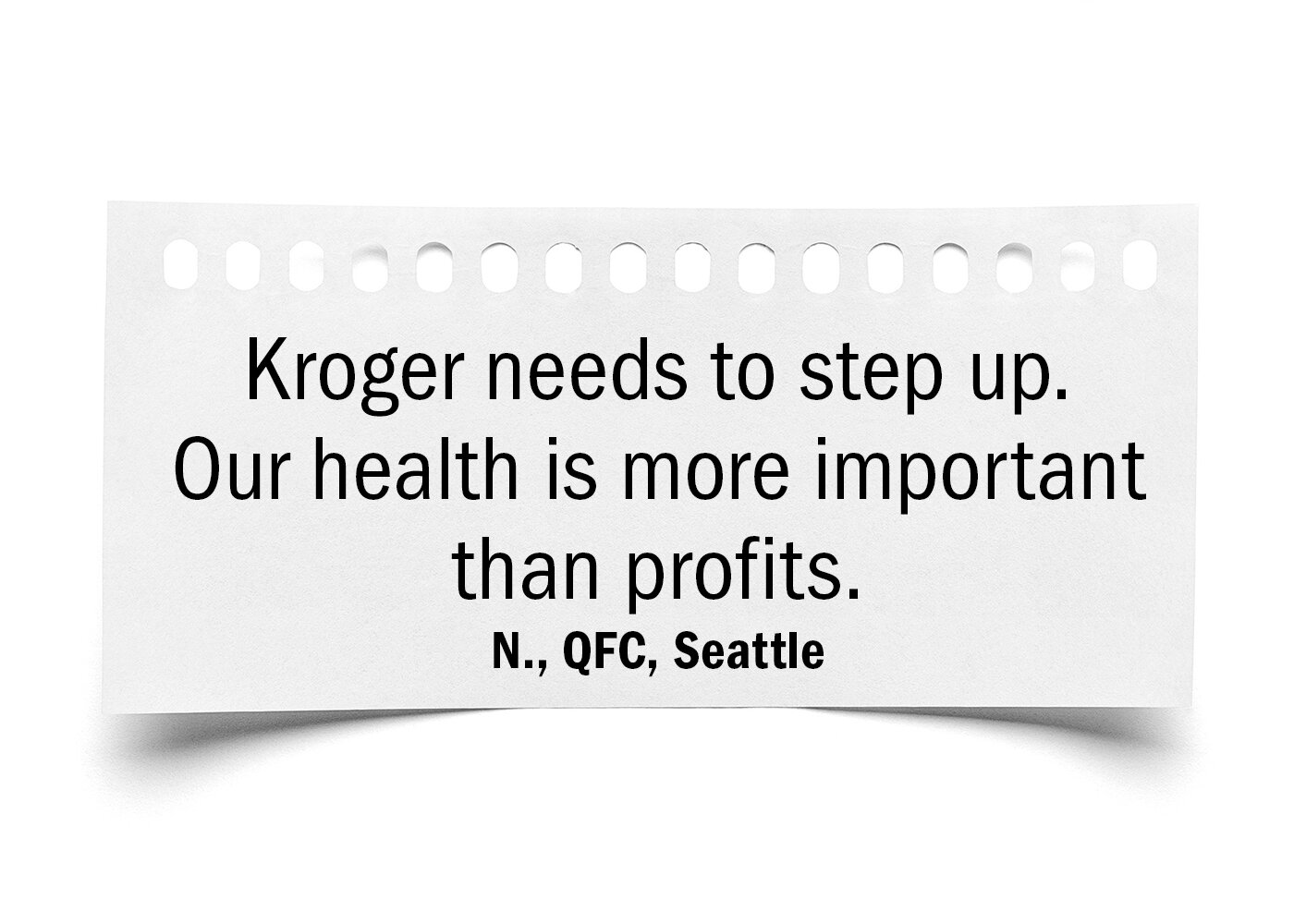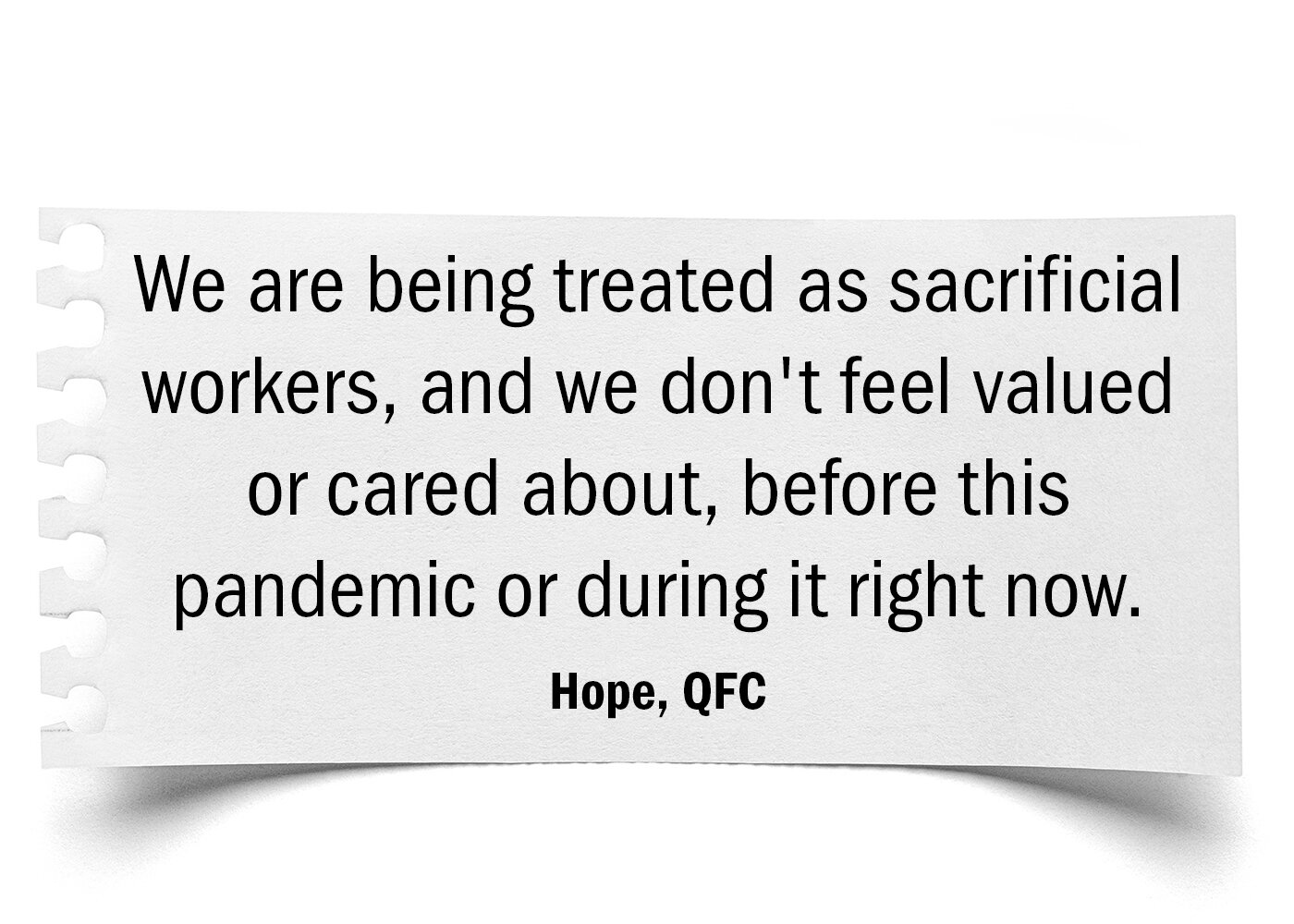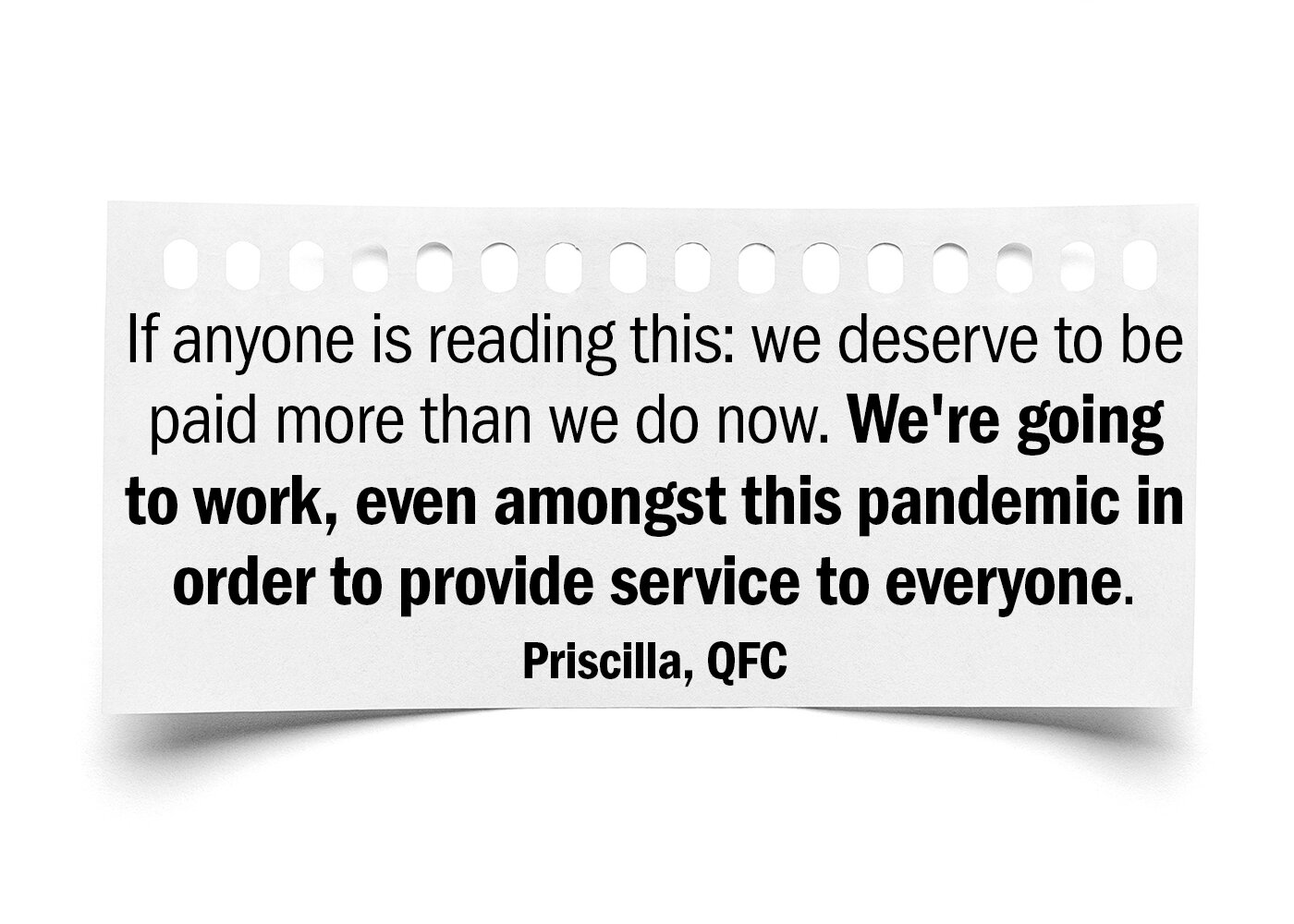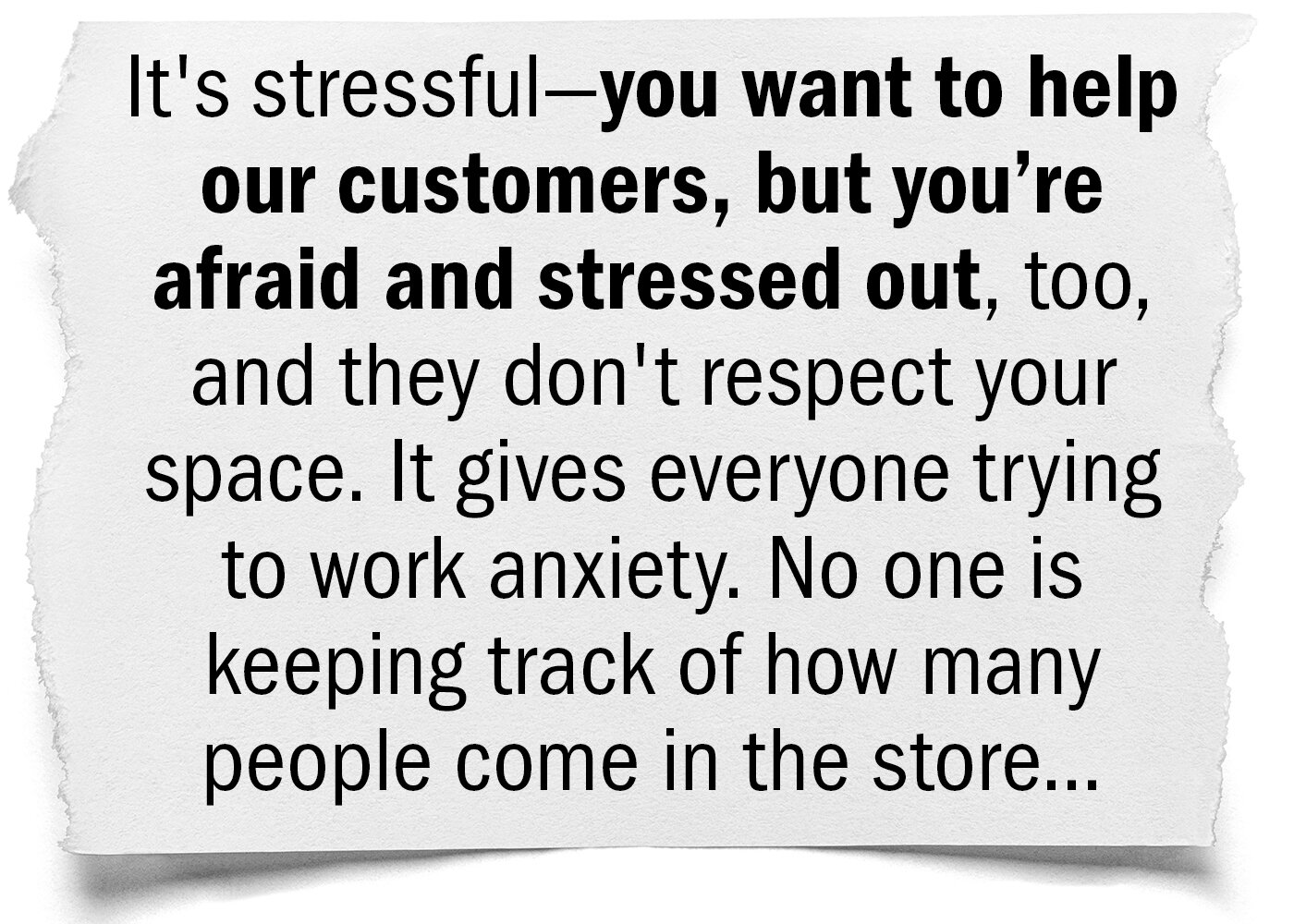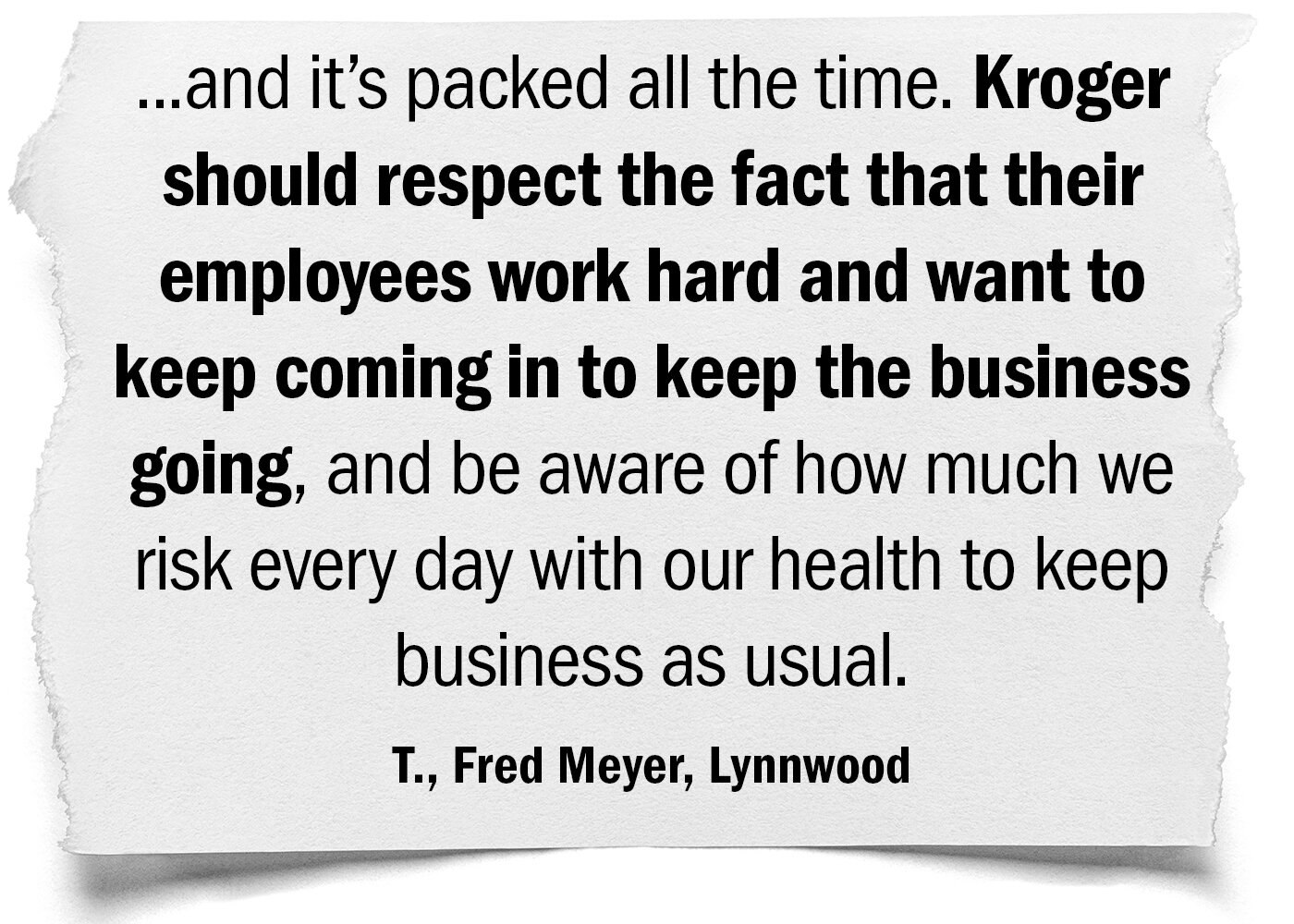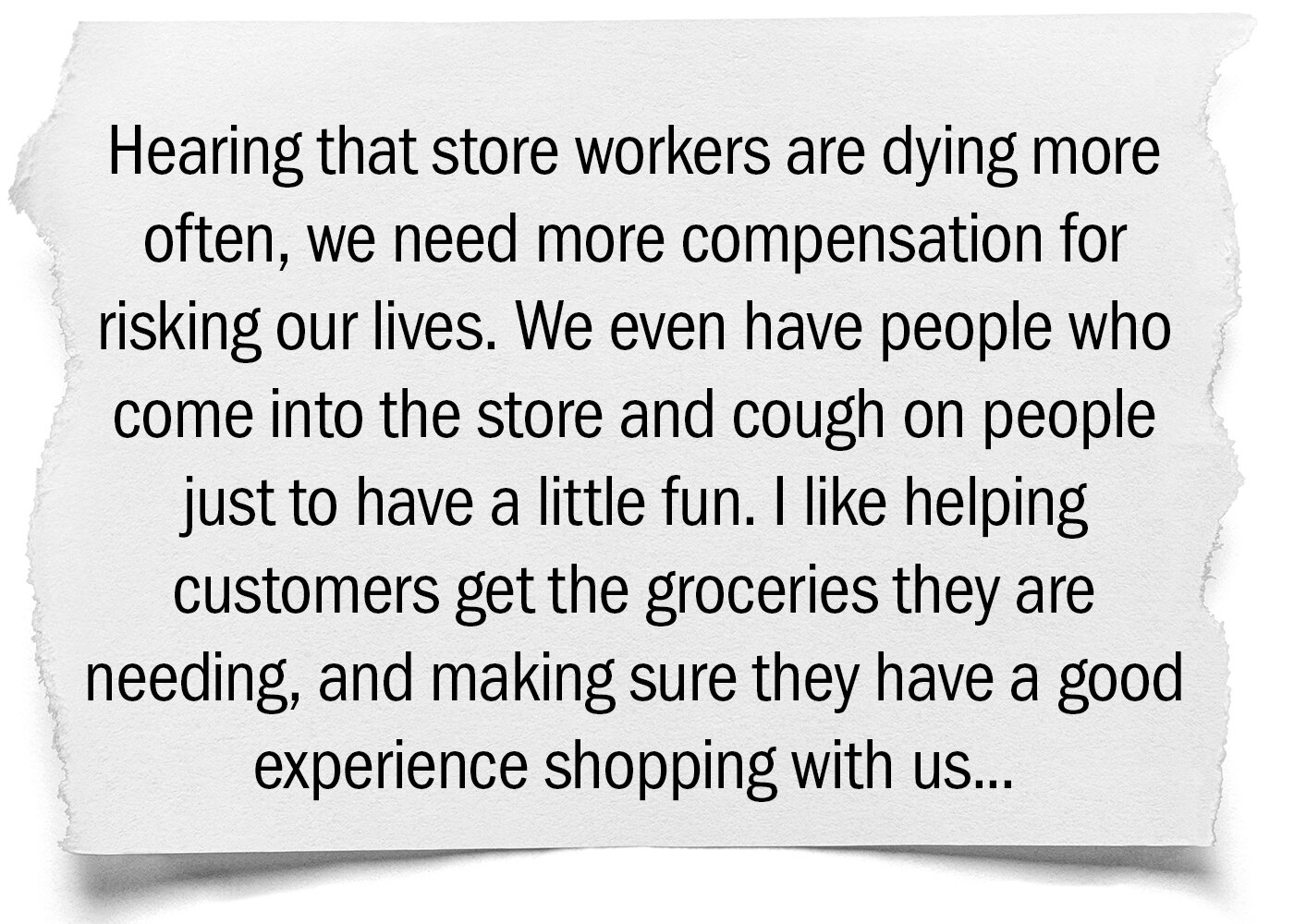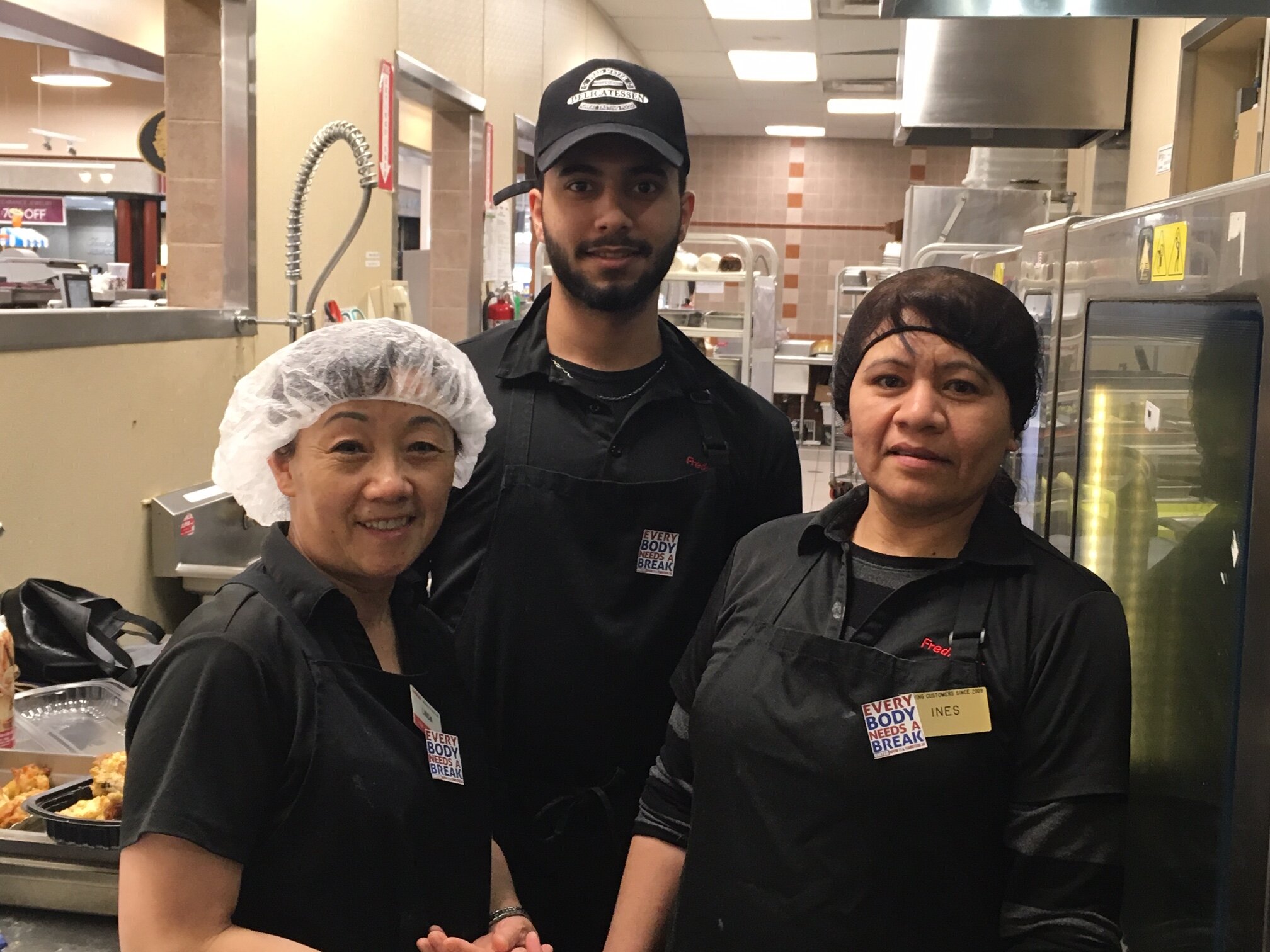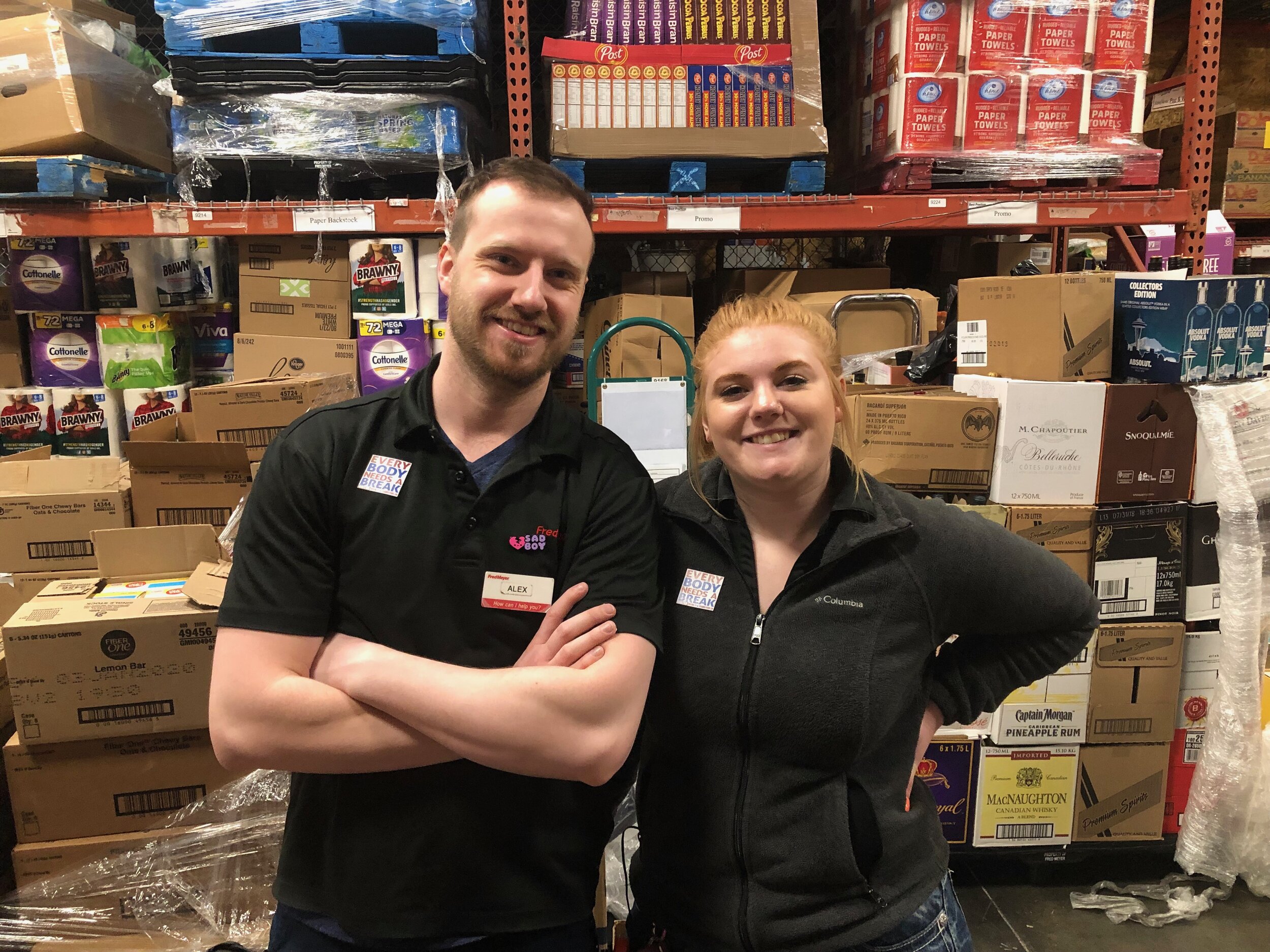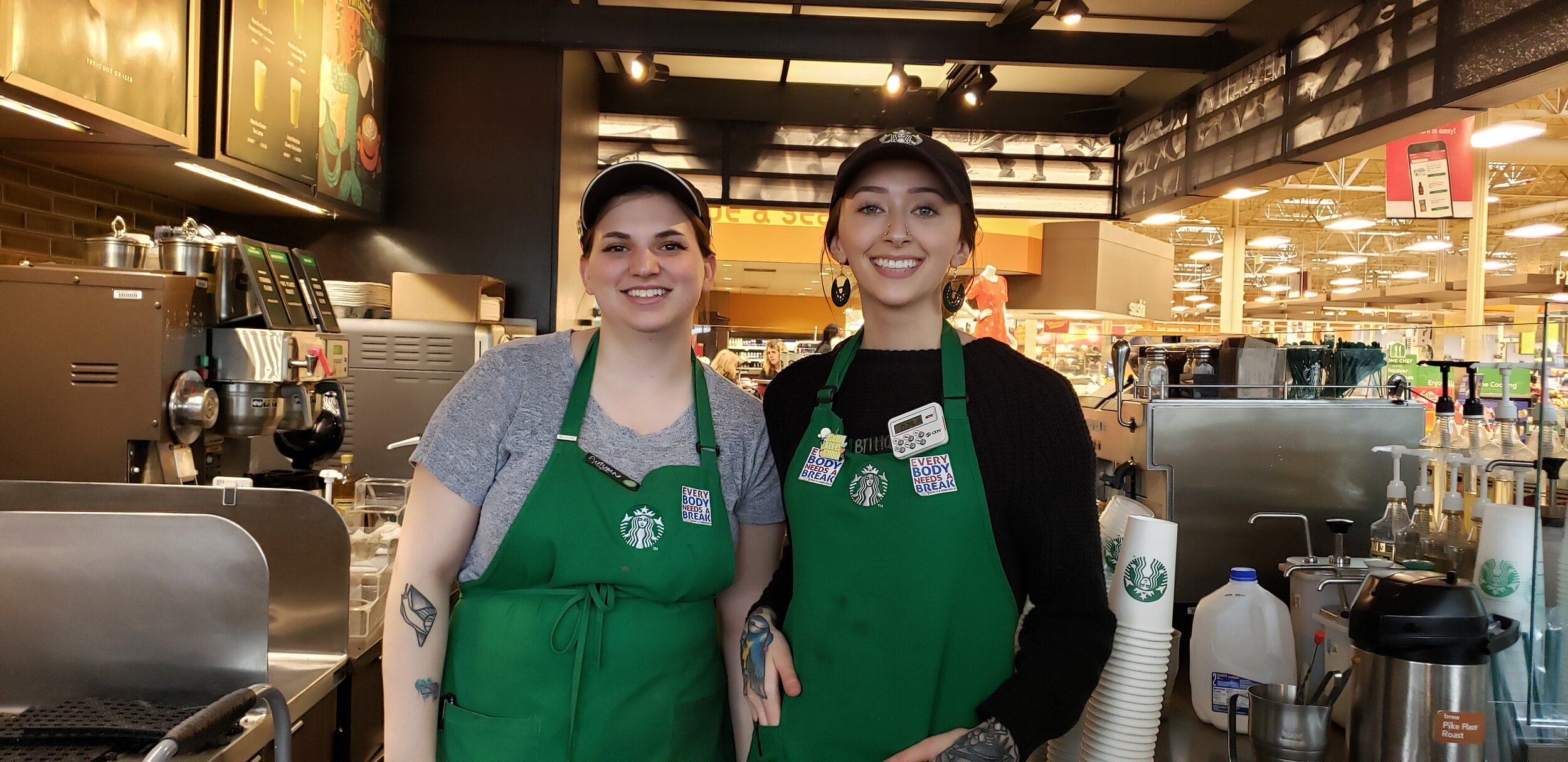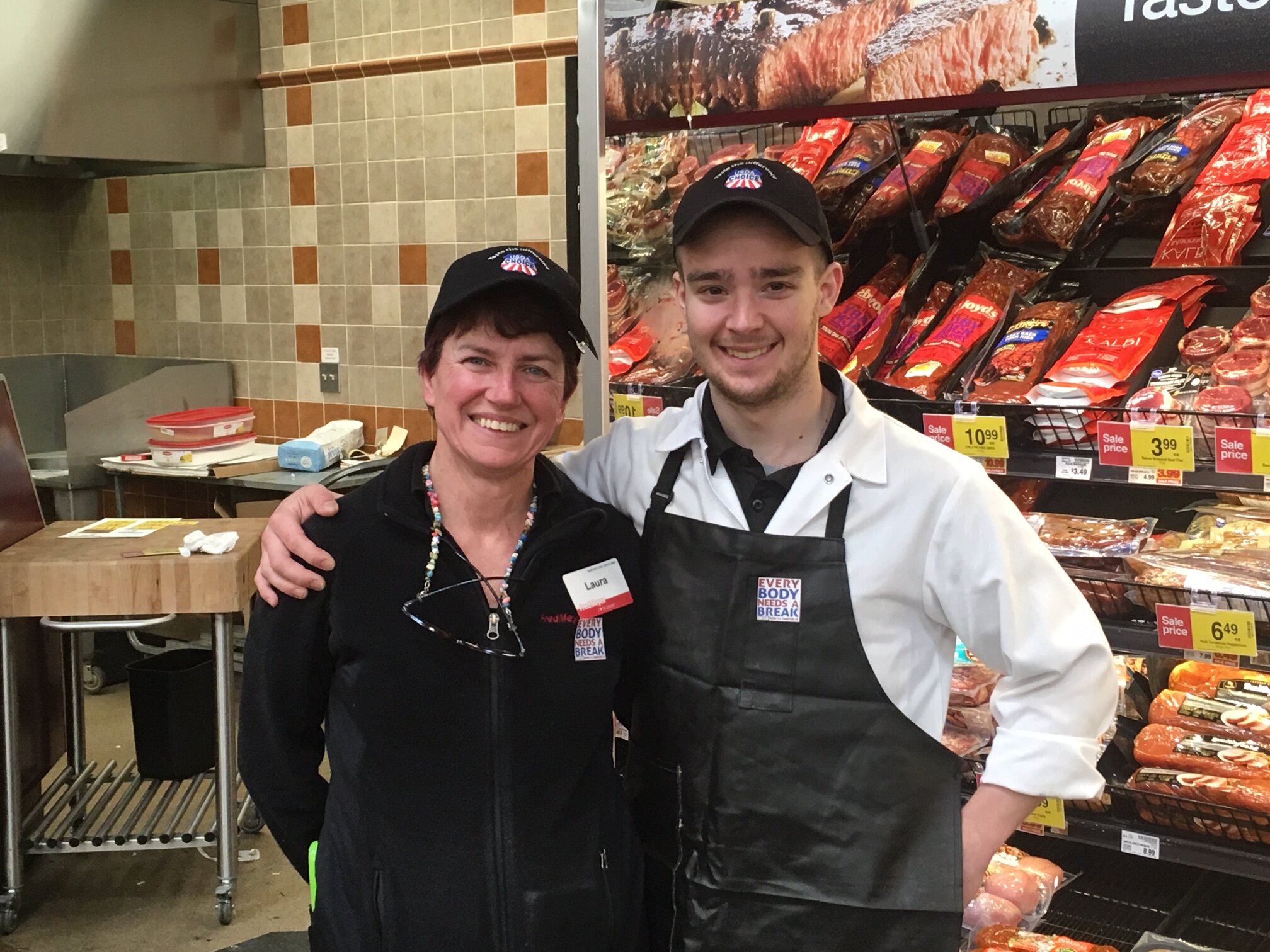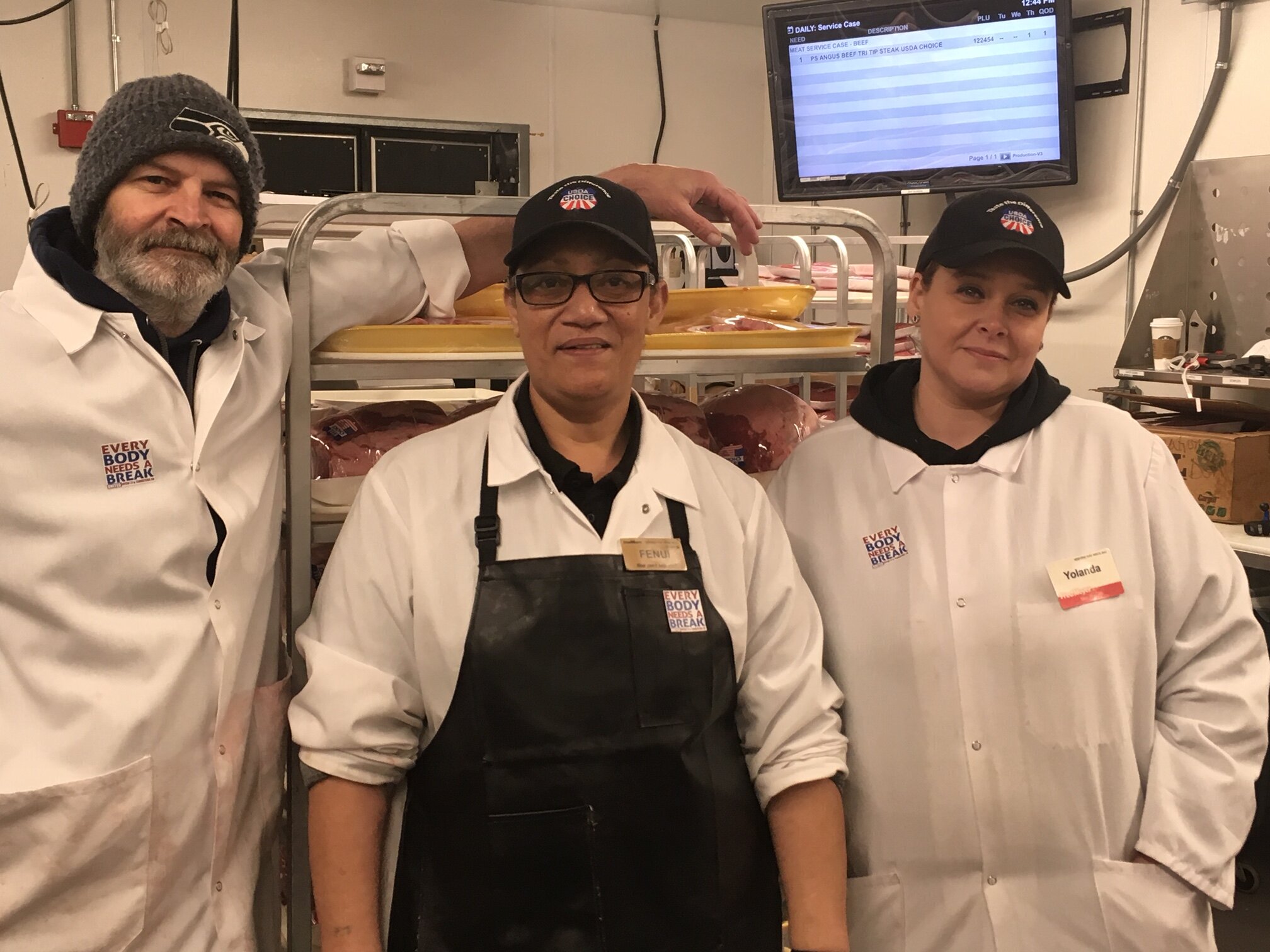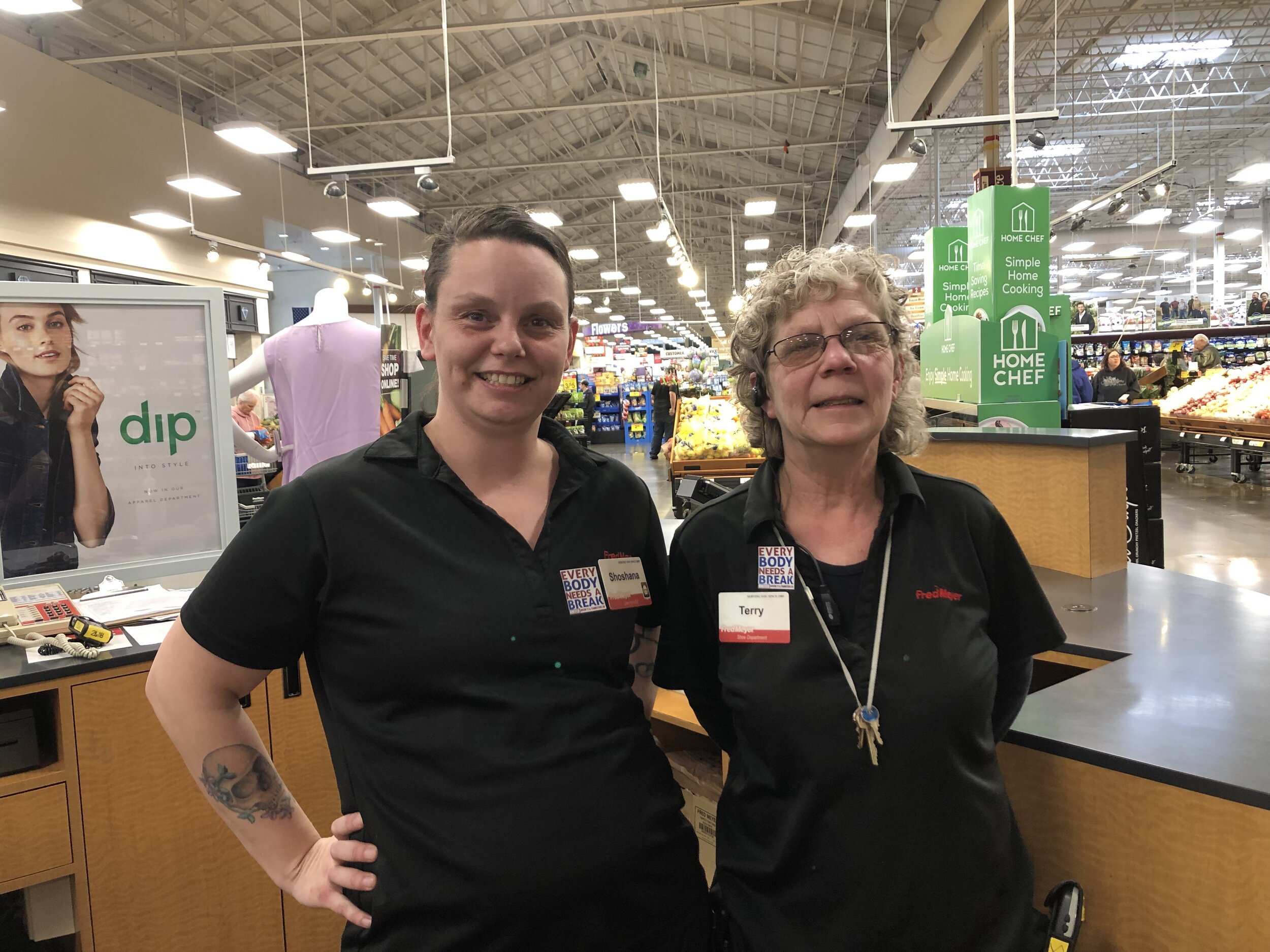Many people are facing a loss of hours, temporary shutdowns, layoffs, or potentially long-term unemployment during the COVID-19 pandemic. We’ve created this resource for UFCW 21 members and other workers who are trying to navigate Washington State’s unemployment system and also find new jobs or extra hours with a union contract.
The state’s Unemployment Insurance program has faced some difficulty dealing with fast-changing rules and a record number of people accessing the system. They are hiring new support staff as fast as they can.
→ As of Sunday, April 19, the state’s website is supposed to be up-to-date. Some people have still experienced errors due to the high volume of people using the site, but the application process has finally changed to reflect a lot of new rules and expanded eligibility.
We strongly recommend you read through this Q&A before trying to contact the state’s Employment Securities Department (ESD). The ESD phone lines are clogged up and have long wait times, and many people’s questions can be answered here or at ESD’s Q&A page on their website.
→ Sign up for ESD’s action alerts for regular up-to-date information.
If you cannot find answers to your questions anywhere, you can contact your Union Rep, or call the Unemployment Law Project at 206-441-9178 or toll free at 888-441-9178. You can also participate in their webinars to learn more and ask questions, every Monday from 12pm to 1pm.
If you’ve had trouble with the unemployment process, our allies at Working Washington are surveying workers about their experience. You can take that survey here.
IF YOU NEED WORK:
To apply for union jobs in grocery or health care with benefits, job security, and a voice at work, go to www.UFCWjobs.com.
To apply for jobs in the cannabis industry at locations represented by UFCW 21, go to www.UFCW21.org/hhjobs.
To find other union jobs, check out this post from MLK Labor on available jobs represented by Teamsters (supply chain, delivery, and more), SEIU Local 6 (security, janitorial), and Washington Federation of State Employees/AFSCME Council 28 (public sector).
UNEMPLOYMENT BASICS
The Employment Security Department (ESD) is the state agency in charge of the unemployment insurance (UI) program.
Unemployment benefits provide you with temporary income when you lose your job through no fault of your own. The money partly replaces your lost earnings. The benefits, from taxes your former employer(s) paid, are not based on financial need. Normally, while you receive benefits, your job is to get back to work as quickly as possible.
The ESD website and forms are all available in English and Spanish. There is also information available in several other languages offline, and the department can use phone interpretation when requested.
During the COVID-19 crisis, UI has been expanded both by our state and by the federal government to be more flexible, cover more workers, and pay more in benefits to most people.
APPLYING FOR UNEMPLOYMENT BENEFITS
The fastest way to apply for benefits is online. While you can file by phone, you should expect extended wait times. There are no in-person unemployment offices in Washington state.
If you haven't already, you must create and activate a SecureAccess Washington (SAW) account to use the online services.
You can create a SAW account here.
Check to see if you already have a SAW account here.
Having trouble creating an account? Watch a tutorial video here.
NOTE: Make sure to keep track of your claim. If you speak with an ESD representative, get their name and jot down the date and time of call.
To help reduce identity theft, the ESD has removed Social Security numbers (SSN) from most of the unemployment documents they send you. They replaced the SSN’s with a customer identification number (ID). You must still use your SSN when calling the claims center, registering for eServices or when using our automated claims line.
If you’ve had trouble logging in to eServices because your SSN is linked to an existing account that you can’t access, please try again.
Other information:
During normal times, in order to qualify for unemployment, first you must show that you have worked more than 680 hours in your “base year” (see below for a definition). This has changed, and you may be eligible if you worked fewer hours.
The one-week waiting period for unemployment benefits has been waived. This means you can be eligible for UI benefits the first week of your claim.
Searching for a job while on unemployment is no longer required. This does not mean that you cannot look for work. If you can find safe work, do so!
Your employer is not allowed to dissuade you (stop you) from applying for unemployment benefits.
If you are laid off because of slow business or a closure, you automatically qualify for unemployment benefits.
If you are fired for reasons that are not your fault, you have a strong case to receive unemployment benefits.
If you are ill and cannot work, Paid Family and Medical Leave exists to provide you support until you recover. This is available to all employees in Washington state, no matter their status.
DEFINITIONS OF TERMS
“Furlough”: a temporary unemployment or reduction of hours for a certain period of time. Typically, there is a date for returning to normal work. You can look for other work in the meantime
“Layoff”: a temporary suspension of work or permanent termination
“Partial unemployment”: benefits available to those who continue to work, but at reduced hours/pay
“Base year”: the period of time ESD uses to determine your benefits, which is the first four out of the last five completed calendar quarters before the week you file your claim (sound confusing? There’s a chart here that explains it better)
“Standby”: a designation for loss of work that is temporary, where you and your employer expect you to return to work; in normal circumstances you would have a return date. Your employer has to agree to this designation, it is not up to you.
Some important notes about Standby:
If you requested standby status (full-time or part-time) during the early parts of the COVID-19 outbreak, you may have received an automated notice indicating your request was denied. That notice may not reflect the emergency rules. If your standby request is later approved, you will receive another letter informing you of the approval.
Before the COVID-19 outbreak, the standby designation was used so that workers did not have to show they were looking for a new job if they and their employer expected them to return at a certain date. Right now, the job search requirement is optional for everyone, so a standby designation may not be as important for you.
A standby designation may allow your employer to continue providing you with benefits, but that is optional and depends on your employer
If you have been denied standby status, it does not mean you have been denied unemployment benefits.
If your employer hasn’t put you on standby, you will automatically be denied If you are denied standby, you should keep making your weekly claim.
There are no penalties for being denied.
The appeals process is the same as usual
The ESD is recommending that you do not appeal a denial of standby unless your issue is complicated, like you need to clarify you were fired as opposed to quitting, or if the designation will affect your access to benefits
Note to Union Members about Standby:
QUESTIONS ABOUT APPLYING
Q. How do I apply for benefits?
A. You can apply for benefits anytime online.
If you do not have access to a computer, smartphone or tablet, you can also apply by phone. The claims center number at 800-318-6022 will be open Monday through Friday from 8 a.m. – 4 p.m. (except holidays) as follows:
Monday: New applications for those with Social Security numbers ending in 0-3. Open only for questions about weekly claims and other general questions.
Tuesday: New applications for those with Social Security numbers ending in 0-6. Open for questions about weekly claims and other general questions.
Q. What documents/information will I need to apply?
A. You will need the following:
Your Social Security Number, birth date and contact information
Information about your last employer including company name, supervisor’s name, address (mailing and physical location) and phone number
The last date worked and the reason you are no longer working
The names and mailing addresses of all employers you have worked for in the past 18 months, including part-time and temporary jobs, and dates of employment
Your bank account and routing number, if you want to sign up for direct deposit
Employment authorization number if you are not a U.S. citizen
Other: For ex-military only - DD-214 form (copy), 2 through 8. For former federal employees only - Standard Form 8.
Q. What happens after I apply?
A. If you provided an email address, you will receive verification via email that your application has been received. Be sure to record your confirmation number before submitting your application in case you have issues with your claim. Keep checking your email and mail for more information, and you will receive an Unemployment Claim Determination letter through the mail. This letter includes the wages reported by your base year employer(s) and, if you qualify for benefits, the weekly benefit amount you will receive.
Once the ESD determines your eligibility, they’ll process and issue payments within a few weeks of receiving a claim. The average unemployment claim is approved with no issues and benefits become available shortly after you file your weekly claim. Other claims require more research to reach a decision. Continue to file weekly claims during this time.
Q. Do I need to be searching for a job to receive benefits?
A. Under emergency rules adopted as part of the state's COVID-19 response, the requirement to search for work is now optional. This measure will be retroactive to March 8, 2020, and will continue until further notice.
Q. How much will I receive as part of my benefits?
A. The amount of benefits you receive depends on your earnings in your reported base year. In Washington, the maximum weekly benefit amount is $790, and the minimum is $188. You can calculate your estimated benefits here.
Q. How long can I get benefits?
A. Your claim is good for a “benefit year,” which is 52 weeks, beginning with the week you file your application. You cannot file a new claim in Washington until your benefit year is over, even though you may have received all of your benefits. Most claims receive between 13 to 26 weeks of benefits.
Q. May I have my benefits deposited directly into my bank account?
A. Yes. If you apply online for a new claim, you will be offered the option of direct deposit. If you are already claiming benefits, or if you re-open a previous claim, you may sign up online.
FEDERAL STIMULUS PACKAGE
On Friday, March 27, 2020, the federal Coronavirus Aid, Relief and Economic Security Act (CARES Act) was signed into law. The law provides additional Unemployment Insurance (UI) assistance to workers affected by COVID-19.
It provides the following:
Every person who receives unemployment benefits through ESD will receive the additional $600 per week that was approved in the federal stimulus package. This will be retroactive from March 27 and run through July 31, 2020.
The $600 will be added to the state unemployment benefit and will be distributed through the state agency, ESD.
The federal government extended the unemployment benefits by 13 weeks. That means that workers can receive the 26 weeks of unemployment plus another 13 weeks (about 9 months total). This includes people who were already on unemployment as well as those who are newly eligible.
Eligibility for unemployment benefits is expanded to include many Washingtonians currently not eligible, including many self-employed people and those that don’t have the typically required 680 hours.
To receive the additional 13 weeks of unemployment, workers must be actively engaged in searching for work. The CARES Act says explicitly, however, that “a State shall provide flexibility in meeting such (work search) requirements in case of individuals unable to search for work because of COVID-19, including because of illness, quarantine, or movement restriction.
Definitions within the CARES Act:
Pandemic Unemployment Compensation (PUC) - $600/week
Pandemic Emergency Unemployment Compensation (PEUC) – 13 additional weeks
Pandemic Unemployment Assistance (PUA) - expanded eligibility for UI benefits
Q. Who is not eligible for the PUC, PEUC or PUA provided by the CARES Act?
A. An individual who stops working in response to a general fear of contracting COVID-19 would be not be eligible for the increased benefits under the CARES Act.
The following individuals are also likely not eligible for the CARES Act expanded UI benefits:
those who are already receiving paid leave under an applicable federal, state or local law
new entrants to the workforce who cannot find employment
NOTE: The federal stimulus checks scheduled to be paid to individuals ($1,200) and families ($2,400) that earn lower to middle incomes will not affect the supplemental unemployment insurance assistance that is to be paid pursuant to the CARES Act. The stimulus checks will not reduce unemployment insurance benefits.
Q. I was laid off before the crisis began and cannot find work now. Do I qualify for the $600 weekly stimulus?
A. Nothing in the rules states that you cannot receive the stimulus money. You will need to create an unemployment account with ESD.
UNEMPLOYMENT Q&A
Q. What should I do if I contract COVID-19 on the job?
A. If you are injured at work, including if you believe you contracted COVID-19 at work, there are two very important things to do immediately: get medical help and tell your employer.
Our state workers compensation system will consider claims related to COVID-19 under certain circumstances, like from health care providers and first responders, or other claims that meet certain criteria. You can find more about this at the state’s workers compensation FAQ. Claims will be considered on a case-by-case basis.
Workers’ compensation pays for medical care directly related to an accident or illness related to your job. If you are unable to work following your illness, you may be eligible for a portion of your lost wages. Workers compensation is available to all employees (works for an employer), no matter their immigration status. See information from the Dept. of Labor and Industries at information on Workers’ Compensation.
Q. What is a request to isolate or quarantine?
A. A request to isolate or quarantine is:
A letter documenting a voluntary request or involuntary order to isolate or quarantine from a medical professional, local health official, or the Secretary of Health.
A note from your medical provider or medical records office recommending isolation or quarantine.
A self-determination that Department of Health’s quarantine guidance applies to you.
The state has changed the definition of “illness” to include isolation and quarantining, including disability. This means that even if you have not been diagnosed with COVID-19, and you are asked to quarantine yourself, you may be able to qualify for unemployment benefits.
Q. Do I qualify for unemployment benefits if I become seriously ill and I am forced to quit my job as a result of COVID-19?
A. If you are too ill to be able and available for work, you do not qualify for unemployment benefits. However, you may qualify for Paid Family & Medical Leave while you are sick. You can learn more in this Q&A. Once you recover and are available for work again, you can apply for unemployment benefits.
Q. What if I need to take time off work because I contract COVID-19?
A. The first and best option for employees who need to miss work due to illness is to use their employer-paid time off. Labor and Industries has information about Paid Sick Leave. When this leave is not available, Paid Family and Medical Leave may be available to help.
Q. What if I am asked by a medical professional or public health official to quarantine as a result of COVID-19, but I am not sick?
A. If you are following guidance issued by a medical professional or public health official to isolate or quarantine yourself as a result of exposure to COVID-19 and you are not receiving paid sick leave from your employer, you may be eligible to receive unemployment benefits. Eligibility decisions are made on a case-by-case basis.
Q. I’m immunocompromised and don’t want to expose myself by going to work. Can my employer compel me to go back to work?
A. Governor Inslee issued a proclamation on April 13 protecting high-risk workers. This proclamation requires your employer to work with you to protect you from exposure, either by making accommodations to your work (telework, reassignment, adequate social distancing) or allowing you to stay home and use any paid leave available to you, including unemployment benefits. They also have to protect your job and can’t permanently replace you, and in most cases they have to protect your medical benefits. Read more and find a full definition of “high risk” workers here.
SHUTDOWNS/REDUCED HOURS/LAYOFFS
Q. My employer has shut down operations temporarily because an employee is sick, and we have been asked to isolate or quarantine as a result of COVID-19. Am I eligible for unemployment benefits?
A. If you are not receiving payment from your employer, such as paid sick leave or paid time off, you may be eligible for unemployment benefits and may qualify for standby during this time. Eligibility decisions are made on a case-by-case basis.
Q. What if I am temporarily laid off work because business has slowed down as a result of COVID-19?
A. If you are laid off work temporarily or if your hours are reduced due to a business slowdown or a lack of demand as a result of COVID-19, you may be able to receive unemployment benefits. Eligibility decisions are made on a case-by-case basis.
Q. What if my employer goes out of business as a result of COVID-19?
A. You may be eligible for unemployment benefits if you’re out of work due to a lack of work.
Q. My co-workers have told me to apply for standby when I file for unemployment. What is standby and when should I apply for standby?
A.
Standby means you do not have to look for another job while you collect unemployment benefits, so long as you stay in contact with your regular employer. You must accept any work you can do without breaking isolation or quarantine that is offered by your employer, such as telework.
Under emergency rules adopted as part of the state's COVID-19 response, the requirement to search for work is now optional. This measure will be retroactive to March 8, 2020 and will continue until further notice.
Emergency rules effective March 20 allow workers up to 12 weeks of standby. If you request more than four weeks of standby, you may receive a letter denying your request. Do not worry.
Q. In normal circumstances where I would be required to search for work, would I have to accept any job that is offered?
A. No, you do not have to look for or accept work that is not suitable. Work is not suitable if:
You must join or resign from a labor union.
The hours or working conditions are not as favorable as most other jobs in your occupation in your area.
The work is farther than the usual commuting distance for people in your occupation in your area.
The wages offered are lower than the wages common for that occupation in your area.
The work is unreasonably dangerous.
Q. I am a part-time employee. Am I eligible for standby?
A. Under the emergency rules put into place as a result of COVID-19, standby is available to all full-time, part-time, and other less than full-time employees. If you worked part time in the last 18 months, you must meet the minimum requirement of having worked 680 hours in your base year in order to have an unemployment claim.
Q. I am coming to the end of my standby status but will not be able to return to work as the business is not reopening yet. What should I do?
A. Continue to apply as usual. The job search requirement has been relaxed.
Q. The application has a question about separation date for stand-by, what should I answer?
A. Last physical date worked.
Q. My hours were reduced a while back and I filed for partial unemployment, then soon after I was laid off. What should I do with my claim?
A. You can change your status of standby to layoff within your online claim. Continue to file weekly.
Q. I work different hours each week, sometime more, sometimes less. Am I eligible for unemployment?
You may be eligible for all weeks or only some weeks depending on your weekly income. Keep your claim open. Be proactive, if you get more money than expected, update that information on your claim. If not, you may have to pay back benefits if your income doesn’t make you eligible for unemployment benefits in a particular week.
Q. I applied for unemployment benefits and was denied but I believe ESD was wrong to deny my claim. What should I do?
A. Always file again (appeal) when you’re denied*. You will be assigned a hearing to appeal your case in front of a judge. There is no fee and no penalty if you end up withdrawing the appeal. Notify the judge in writing if your issue is resolved otherwise it may be very difficult to get another hearing.
*The ESD is recommending that you do not appeal a denial of standby unless your issue is complicated, or the standby designation will affect your access to benefits.
Q. Do I need to report any holiday or vacation pay?
A. Yes, report the holiday pay during the week in which the holiday occurred. Do not wait until you are paid for the holiday to report it.
If your vacation pay was accrued and there are no specific dates attached to it, you do not need to report it. However, if your vacation pay was for specific days, it is deductible, and you need to report it. Be sure to report it for the week(s) in which the vacation days occurred.
Q. Is there a downside to applying for benefits before I truly need the extra income?
A. There is no downside to applying early but if you are able to find other work, do so! While we can’t predict the future, there may be more extensions to the unemployment benefits, and you should be able to apply down the road once you truly need the financial support.
Q. Are unemployment benefits taxable?
A. Yes. The Federal Internal Revenue Service (IRS) does not require the ESD to withhold taxes from your weekly unemployment benefits. However, you may choose to have 10 percent of your weekly benefits deducted for income-tax purposes. You may avoid a large tax bill if you choose to have income taxes withheld from your benefits.
Q. Am I eligible for unemployment benefits if I’m locked out due to a strike or labor dispute?
A. It depends on the circumstances. For more information on labor disputes, see ESD’s Strike and labor disputes section.
PAID FAMILY AND MEDICAL LEAVE (PFML), PAID SICK LEAVE, WORKERS COMPENSATION
Q. I’ve been told that I can apply for PFML instead of applying for unemployment benefits. Which program is better for me?
A. PFML benefits are capped at $1,000/week at 12 weeks while unemployment benefits are capped at 26 weeks in normal times. The federal stimulus will add another 13 weeks for a total of 39 weeks of unemployment benefits available to workers.
Q. I’m currently on paid sick leave. Can I also receive unemployment benefits?
A. No, you cannot receive unemployment benefits while you receive paid sick leave. The paid sick leave benefits are considered earned income because it replaces your work income.
Q. I’m currently receiving workers compensation. Can I apply for unemployment benefits?
A. No, the law does not allow a worker to receive workers comp and unemployment benefits at that same time.
Q. I’m told that I should use my sick time and vacation hours before applying for unemployment. Is that recommendable?
A. The rules don’t force you to use those benefits first. Also, you may want to keep some or all of those benefits so they’re available to you once you return to work.
Q. I believe my employer has been reporting less hours than I worked and that may affect my eligibility. What should I do?
A. Submit proof of the hours you truly worked. The employer will have to verify these hours. You may appeal if you are initially denied due to employer error or abuse and submit your documentation.
Q. My employer asked me if I would accept a voluntary layoff. Should I accept and will I be able to receive unemployment benefits?
A. We do not recommend you accept a voluntary layoff because it is essentially the same as quitting. If you quit, you won’t be eligible for regular unemployment benefits and you also won’t be eligible for the additional $600 from the federal stimulus.
Q. I have been unemployed for a while, even before the crisis began, but I haven’t applied for unemployment yet. Do I qualify for unemployment?
A. If you’ve been unemployed for several weeks but did not file as soon as you became unemployed, you may still qualify for backdated unemployment benefits, but you will need to be able to prove the loss of work.
Q. I live in WA state but have been working here in WA and another state. Where can I claim unemployment now that I don’t have any work?
A. Unemployment benefits are tied to where you work not where you live. You should be able to apply for unemployment in both states.
Q. I have been laid off, but my employer will continue to pay for my health insurance. Does that affect my eligibility for unemployment benefits?
A. No, receiving health insurance does not affect your eligibility.
Q. I get paid hourly and by commission. Will I be able to receive unemployment benefits for the lost commission?
A. Maybe. Typically, you report income when you earned it not when you received it. Report your best estimate of your commission and ESD will determine if you can receive benefits for that loss of income.
Q. I’m receiving severance pay—is that considered income, and will I be able to apply for unemployment benefits?
A.
If you receive a one-time payment, you will not qualify for unemployment for the week in which you receive the severance pay. After that, you may be eligible depending on your other circumstances.
If you receive several severance payments, your employer must report taxes paid to ESD on this income and if this severance pay disqualifies you from receiving the unemployment benefits, you can apply once the severance pay runs out. You will be able to file and receive full unemployment benefits, the 26 weeks plus the 13 additional weeks extended by the federal government.
SHAREDWORK
If your employer needs to reduce staff levels, they may initiate a work-share program so that people can work part time and obtain some partial unemployment benefits.
Your employer must sign up for the SharedWork program. Otherwise it’s not available to you.
Q. My hours have been reduced and I only work a few hours a week. Can I apply for SharedWork?
A. If your employer has not applied for SharedWork, you will not be able to participate in the program. Ask them to sign up. The employer must be the one to notify ESD that you are on standby.
You can work part time and receive unemployment benefits even if SharedWork is not available to you.
Partial Employment or SharedWork: Under certain circumstances, you may work part-time while collecting unemployment benefits.
HEALTHCARE WORKERS
Q. I am a healthcare worker and I feel vulnerable to contracting COVID-19 because I am not being provided with PPE and other protective equipment. Can I quit and receive unemployment benefits?
A. You have the right to a safe work environment, and your union contract protects you from losing your job without a just cause for termination. Just cause means you should not be disciplined for refusing to obey an unreasonable order. An order to perform a work assignment that is likely to cause serious bodily harm to an employee is not reasonable. Instead of quitting, consult with your Union Rep and read our Q&A on Refusing Unsafe Work Assignments. You can also submit a complaint to the state agency in charge of investigating safety claims, DOSH. This action is considered protected activity.
Q. I am a healthcare worker who has been quarantined due to exposure or confirmed COVID-19, is unemployment insurance the right benefit to try and use?
A. UFCW 21 believes all employers should put workers on paid leave during quarantine or confirmed COVID-19 illness. But even if your employer is not doing this, you may be eligible for workers compensation during quarantine due to a state emergency rule.
SCHOOL CLOSURES
Governor Inslee announced a statewide closure of schools beginning midnight, March 17, through the end of the school year.
Q. The school I work at is closed due to the Governor’s order to close. Am I eligible for unemployment benefits?
A. If you are being paid by the school while your school is closed, you can apply for benefits, but you may be considered fully employed and not eligible. If your school is not paying you while it is closed, you may be eligible for benefits. You will have to be able, available and actively seeking work during each week you claim, unless you are approved for standby. Eligibility decisions are made on a case-by-case basis.
Q. My child’s school is closed due to the Governor’s order. If I don’t have childcare and stay home to take care of my children, am I eligible for unemployment benefits?
A. It depends. If you cannot go to work because you don’t have childcare for your child while school is closed, you should call your employer and let them know why you are absent. If your employer fires you or lays you off while you are absent, you may qualify for benefits. However, you are required to be able, available and actively seeking work each week you collect unemployment benefits. If you do not have childcare so that you can return to your job or accept a work offer, you will not be eligible for unemployment benefits. If your situation changes, let us know. Remember, your first and best option should always be employer-paid time off.
Q. I am a substitute teacher who is no longer able to secure work with a school because of the closures. Am I eligible for unemployment benefits?
A. You may be eligible for unemployment. You will have to be able, available and actively seeking other suitable work during each week you claim. Eligibility decisions are made on a case-by-case basis.
IMMIGRANTS AND UNDOCUMENTED WORKERS
Q. Do immigrants qualify for unemployment benefits?
A. It depends on their status. If an immigrant has a work visa or DACA (Deferred Action for Childhood Arrivals) and their work permit will not be expiring soon after they apply for the benefits, they qualify. If their work authorization expires, they will no longer qualify for this benefit.
Undocumented do not qualify for any current unemployment benefits.
We are working in collaboration with other unions, legal groups, immigrant justice groups to support our immigrant communities in WA state and will share information once that is available.
EXISTING UNEMPLOYMENT CLAIMS (BEFORE THE CRISIS BEGAN)
Q. How am I supposed to meet deadlines related to my existing unemployment claim if I am in isolation or quarantine as a result of COVID-19?
A. Under the emergency rules we put into place as a result of COVID-19, we are providing more leniency for many UI deadlines, such as deadlines for training programs. Submit your documents as soon as you are able and provide as much information as you can. Progress reports for training programs can be submitted with whatever information you have available. For example, if your school has closed, return your paperwork and tell us.
Q. What if I’ve been collecting unemployment benefits and either myself or a family member gets sick with COVID-19 and I must care for them, what options do I have for benefits?
A. If you have been receiving unemployment benefits and are now sick with COVID-19 or need to take care of a loved one who is sick with COVID-19, you may not be considered able and available for work. You can apply for benefits with Paid Family and Medical Leave. You cannot receive both unemployment benefits and PFML during the same week. You need to stop claiming unemployment benefits when you start receiving Paid Family and Medical Leave. Cancellation of your unemployment claim is not necessary. Please visit Paid Family and Medical Leave's website for more information. Eligibility decisions for both unemployment and PFML are made on a case-by-case basis.
GIG WORKERS AND INDEPENDENT CONTRACTORS
Q. I am a gig worker. Am I eligible for unemployment?
A: Maybe! Coverage under Washington's unemployment insurance law is broader than under most other laws. This means that just because you are classified as an independent contractor under some laws does not mean that you are an independent contractor under Washington's unemployment laws. If you are a gig worker who has been laid off or lost work, we encourage you to apply for benefits. The department will evaluate each application for eligibility on a case by case basis.
The online application it is not currently designed for “gig worker” applications, fill it out the best that you can and save information that may show hours worked.
If you do apply, to help speed the process for determining your eligibility and potential benefit amount, please be prepared to gather your payment records from the last year to provide to the claims staff.
The federal stimulus package will be providing some relief to gig workers under the Pandemic Unemployment Assistance portion of the bill. We recommend you file now to establish a claim. If your application is denied, you can appeal and request a hearing.
Q. I am a 1099 or independent contractor, do I qualify for unemployment?
A. Go ahead and file, the ESD will determine your eligibility to state unemployment. If you do qualify, you may receive benefits from the state. ESD will follow up with you with instructions.
Under the CARES Act, unemployment benefits have been expanded to include those who normally wouldn’t qualify, such as independent contractors. You can leave your claim open or file once that is implemented, sometime in the week of April 18.





